






















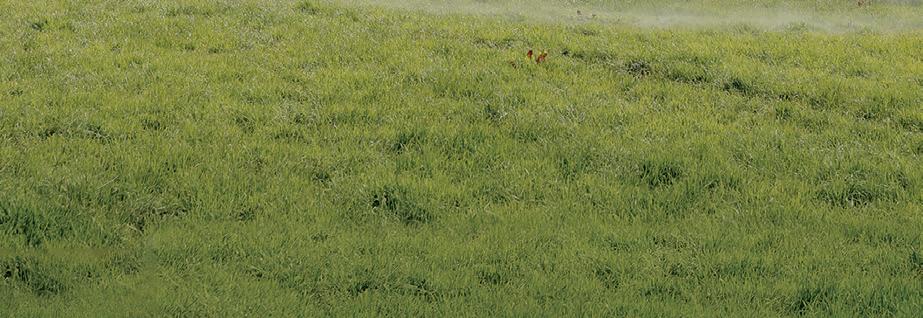
We spread crushed basalt rock on agricultural land, enriching soil fertility, supporting healthy crop growth and stabilising soil pH. This locally-sourced rock also removes CO from the atmosphere through a natural process known as enhanced rock weathering. It’s a win-win for your land and the environment.

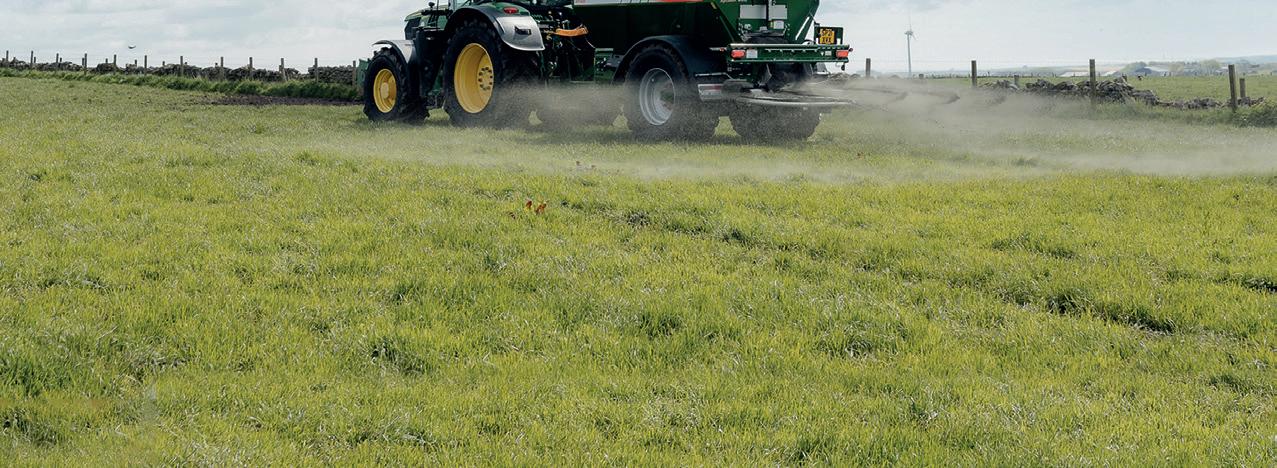
Basalt is a mineral-rich volcanic rock that has been applied as a soil amendment for hundreds of years. It’s a product of the Scottish aggregate industry which is screened to ensure it's safe for agricultural use. Our basalt is suitable for all crops, including pasture, and has been approved for use in certified organic farming systems.
Our basalt is supplied and spread free of charge or heavily subsidised, using local contractors who know the roads and the land. Farmers can expect to see the following benefits:
Nutrient uptake: Crushed basalt releases magnesium, calcium, potassium and other nutrients, boosting soil health and making your crops more pest-resistant.
Improved soil pH: As basalt weathers, it helps maintain the target pH of the soil.
Basalt delivers a slow release of alkalinity to stabilise soil pH at optimum levels for longer.
Higher crop yield: An initial trial with The University of Newcastle showed crop yield was on average 15% higher (9.3% and 20.5% between ploughed and direct drill amended plots) following the application of crushed basalt.
Farmers and landowners in the central belt of Scotland and North East Scotland.
With the help of farmers like you, our mission is to remove 1 billion tonnes of CO from the atmosphere to make the planet livable for future generations.

If you are interested in enriching your soils whilst removing CO
contact Joe Ritchie on 07400 858
or email joe@un-do.com.



NFU Scotland, Rural Centre, West Mains
Ingliston, Edinburgh EH28 8LT
NFU Scotland, Rural Centre, West Mains Ingliston, Edinburgh EH28 8LT
NFU Scotland, Rural Centre, West Mains
OW often do you see or learn about something and think ‘I’m up for

Ingliston, Edinburgh
Tel: 0131 472 4000
EH28 8LT


www.nfus.org.uk nfuscotland @NFUStweets
H0131 472 4000 www.nfus.org.uk nfuscotland @NFUStweets @nfuscotland
Tel: 0131 472 4000

Editor Diana McGowan editor@nfus.org.uk
www.nfus.org.uk
nfuscotland
Design & Production
Editor Diana McGowan editor@nfus.org.uk
@NFUStweets
Mark Shreeve mark.shreeve@micropress.co.uk
Managing Editor
Craig Gibson
Andrew Hirst andrew.hirst@micropress.co.uk
Advertising Sales
Design & Production
Editor Diana McGowan editor@nfus.org.uk
Ryan Swinney
Danny Lewis 01502 725862 danny.lewis@micropress.co.uk
Advertising Sales
Managing Editor
Craig Gibson
Lawrence Kenny 01502 725860 lawrence.kenny@micropress.co.uk
Clare Stebbing clare@connect communications.co.uk
Tel: 0131 561 0024
Design & Production
Ryan Swinney
Published on behalf of NFU Scotland by COUNTRYWIDE PUBLICATIONS
Advertising Sales
Clare Stebbing
Published on behalf of NFU Scotland by Connect Publications (Scotland) Ltd.
Fountain Way, Reydon Business Park, Reydon, Suffolk IP18 6SZ 01502 725800
clare@connect communications.co.uk
Printed by MICROPRESS PRINTERS LTD
Studio 2001, Mile End, 12 Seedhill Road, Paisley PA1 1JS
Tel: 0131 561 0024
Fountain Way, Reydon Business Park, Reydon, Suffolk IP18 6SZ 01502 725800
Published on behalf of NFU Scotland by Connect Publications (Scotland) Ltd.
Studio 2001, Mile End, 12 Seedhill Road, Paisley PA1 1JS

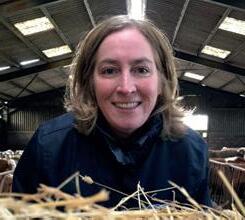
positive thought/ silent commitment? Possibly too often or not at all.
HIn this month’s magazine, our two features cover inspiring stories and highlight just how rewarding delivering on such thoughts can be both for the individual involved and others who may benefit along the way.
IOW often do you see or learn about something and think ‘I’m up for that’, but then never actually realise that positive thought/ silent commitment? Possibly too often or not at all.
Diana McGowan
t was only about a week ago that the regional team were all gathered in the Ingliston office. I was chatting with John, Nicola and Lee about harvesting and what was going on in Orkney and Shetland as the seasons were changing. Part of the discussion highlighted once again how the difference in latitude between our most southern and most northern members impacted the timing of when key work within the farming and crofting year gets done. Some areas start earlier than others while others benefit from longer daylight hours and perhaps milder weather than others. Variety across the membership is a massive strength and we can each appreciate, learn and grow from sharing experiences and uniting our voices to influence decision makers no matter where you are based.
We’re only a few weeks away from the Royal Highland Show. Over the course of four days, thousands will flock to the show to compete, judge, exhibit, organise, educate and socialise. We’ll see the best of the best and relish the atmosphere. Among the highlights and away from the main show ring, this year will see the welcome return of the Golden Shears Sheep Shearing and Woolhandling World Championships. Taking place at the MacRobert Theatre, the 2023 Worlds will see more than 30 countries compete for the prestigious title and it promises to be an action packed showcase of the art, skill and techniques required to be a world champion. Perhaps a less well known event taking place at this year’s Highland is the final qualifying round of the 2023 Britain’s Fittest Farmer competition. Taking part in this event for the first time is Kyla Graham from Kirkcudbrightshire. Kyla first spotted the event at the Show last year and while watching it thought ‘I’m up for that’. Kyla knew however she couldn’t just enter there and then. Like any competition, she understood you need to be ready for it and without knowing if she would even enjoy it, she set her mind to it to finding out if she would. Kyla shares her journey from that moment to the present and highlights how she’s benefited already in so many ways both mentally and physically, and explains about the positive impact her preparation has had on her working life.
In this month’s magazine, our two features cover inspiring stories and highlight just how rewarding delivering on such thoughts can be both for the individual involved and others who may benefit along the way.

Sharing stories and experiences is what the Farmstrong Scotland’s ‘Blether Together’ podcast series is all about. For this issue of Scottish Farming Leader, I caught up with the series’ presenter Sarah Stephen to flip the switch a bit and interview her rather than vice-versa. Read my report on pages 32-34 and discover more about podcasting and the impact recording the series has had on Sarah to date.
We also shine a spotlight on future funding, our recent political lobbying activities in Westminster, Holyrood and Liverpool, activity from across the regions and policy teams, and explore some of the highlights at November’s AgriScot event where Martin Kennedy will be going head-to-head with a Scottish Government Minister at the 10am morning debate –always something not to be missed.
We’re only a few weeks away from the Royal Highland Show. Over the course of four days, thousands will flock to the show to compete, judge, exhibit, organise, educate and socialise. We’ll see the best of the best and relish the atmosphere. Among the highlights and away from the main show ring, this year will see the welcome return of the Golden Shears Sheep Shearing and Woolhandling World Championships. Taking place at the MacRobert Theatre, the 2023 Worlds will see more than 30 countries compete for the prestigious title and it promises to be an action packed showcase of the art, skill and techniques required to be a world champion.
Please note next month’s issue will be a December/January one which will be out mid-December. This double issue will contain our 2024 Annual Report along with information about the candidates standing for President and Vice-President election at our AGM in February.
The other feature looks at how a casual conversation during a Christmas lunch turned into the most rewarding and humbling experience for Next Generation Chair, Matthew Steel, one of the many volunteers who have recently delivered much needed 4x4 vehicles to Ukraine to support the war effort. Matthew explains his contribution to the ‘Pickups for Peace’ campaign and reflects on how the unexpected reception received from the Ukrainians has impacted him and those who were involved. Finally, as we head towards the longest day, with the hope of some warmer weather on the horizon, I hope you’re remembering to dress for the weather and wear protective sunscreen and hat when you’re out and about. The strength of the sun even on a dull day can prove harmful if exposed without protection. If you need a new baseball cap, visit the NFU Scotland website and purchase one from the branded merchandise in the Members’ Benefits section.
Going back to my conversation with our Orkney and Shetland regional advisors, I mentioned the Northern Lights/Aurora Borealis (AB) and commented on how lucky I’d been to see an amazing display earlier this year and how I’d hope to see it again. My enthusiasm and excitement about the prospect of seeing this ‘rare’ natural phenomenon again wasn’t really equalled – it’s almost a ‘norm’ for our northern members it seems. We laughed but I was royally rewarded for my enthusiasm days later as I stood in my back garden relishing the stunning display of the AB. I hope many of you also enjoyed them too and I see a few more displays over the winter months ahead.
Perhaps a less well known event taking place at this year’s Highland is the final qualifying round of the 2023 Britain’s Fittest Farmer competition. Taking part in this event for the first time is Kyla Graham from Kirkcudbrightshire. Kyla first spotted the event at the Show last year and while watching it thought ‘I’m up for that’. Kyla knew however she couldn’t just enter there and then. Like any
The other feature looks at how a casual conversation during a Christmas lunch turned into the most rewarding and humbling experience for Next Generation Chair, Matthew Steel, one of the many volunteers who have recently delivered much needed 4x4 vehicles to Ukraine to support the war effort. Matthew explains his contribution to the ‘Pickups for Peace’ campaign and reflects on how the unexpected reception received from the Ukrainians has impacted him and those who were involved.
“We’ll see the best of the best and relish the atmosphere”
Finally, as we head towards the longest day, with the hope of some warmer weather on the horizon, I hope you’re remembering to dress for the weather and wear protective sunscreen and hat when you’re out and about. The strength of the sun
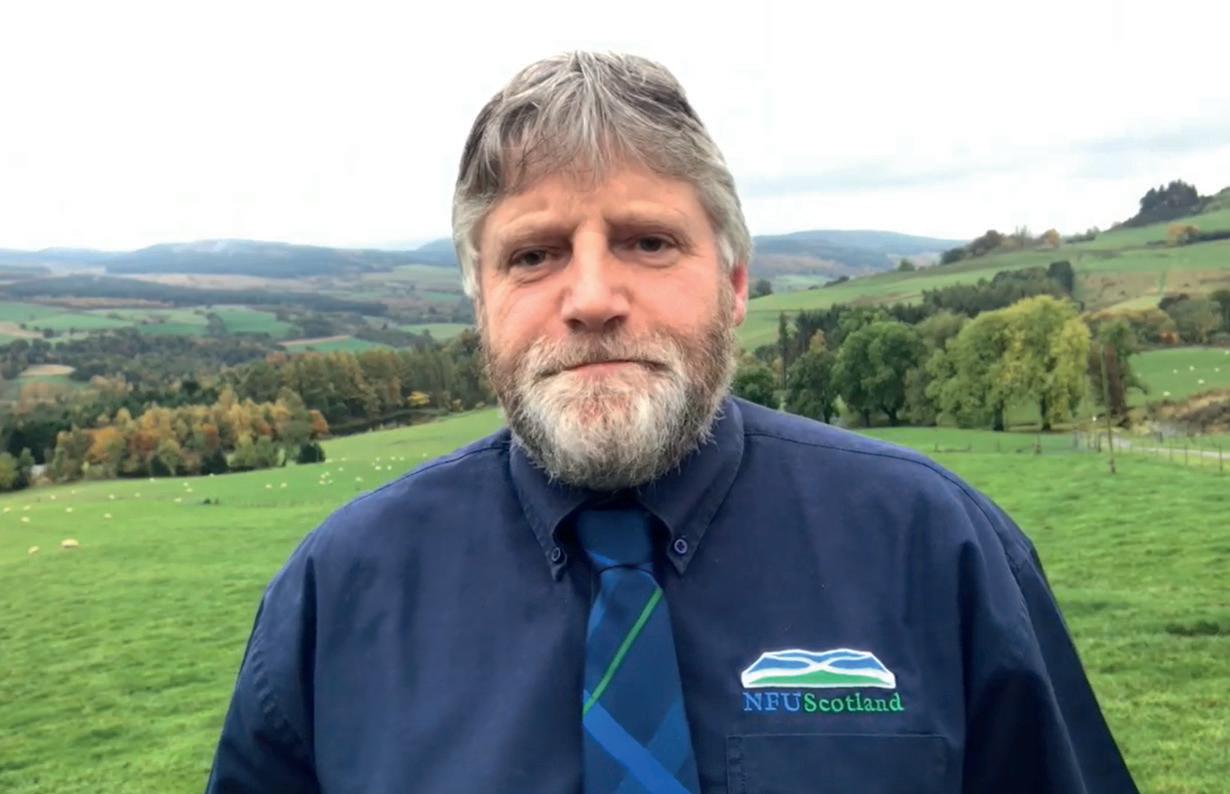
Every year is different and as farmers and crofters we have no choice but to deal with the vagaries of the weather. As I write this month’s column the look of the landscape couldn’t be more different from twelve months ago. The River Tay below is relatively low for this time of year. Last year it reached one of its highest recorded levels and that was just with rain, no snow melt.


Last year was also the fi rst year ever there wasn’t enough snow to justify us putting the plough onanother factual statistic that proves things are defi nitely changing. Sadly, that’s not for the better, it may be milder but for livestock, either inside or out and winter cropping, the increased continual rain is certainly not as healthy as if it’s cold and dry.
What we must do is adapt to this changing environment. That is exactly why we must keep the pressure on governments to listen to what our requirements are if we are to deliver on food, climate, biodiversity and rural communities’ policies.
Although continuing direct payments across Scotland are
absolutely necessary, and we have fought successfully to keep them, it is also vitally important that capital spend is available to allow us to invest in infrastructure that will enable us to be more resilient. Climate change is having an even greater effect on many other parts of the world, so as a country that is fantastically placed to produce food sustainably, not just for ourselves but for others around the world, it is crucial that our eff orts are supported by proper investment.
Tier 3, which is the elective tier (competitive), is still not clear. By the end of October, the long-awaited UK budget from this new Labour Government will have been announced and we will know to what degree Westminster recognises the importance of our industry. Only after that will the Scottish Government make clear, in their budget in December, if they also understand fully the long-term contribution agriculture makes to our society and economy.
we must keep the pressure on governments to listen to what our requirements are if we are to deliver on food, climate, biodiversity and rural communities’ policies.
We now have a clear view of what will be required of us through Tier 1 (formally BPS) of the new support structure ‘til 2028. We are also closer to understanding how the new enhanced Tier 2 (formally Greening) will operate from 2026 onwards. However, capital spend amounts and all it supports through
Given the huge eff ort the NFU Scotland team have put in over the past months to make sure our voice is heard, not only in Holyrood but also Westminster, I sincerely hope these budgets deliver or else our economy, which is completely underpinned by agriculture, will shrink like never before.

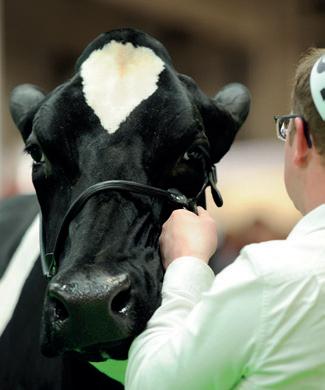
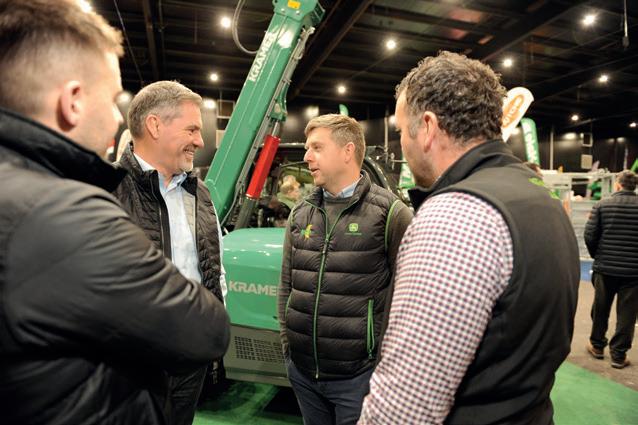


Diversify
Sykes
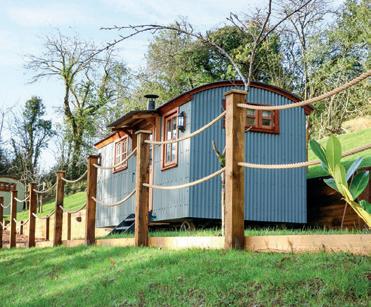


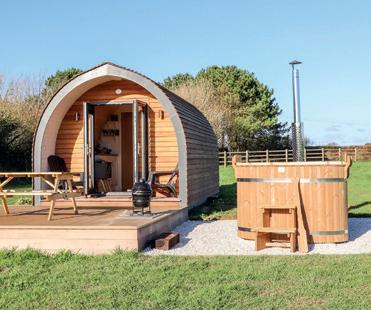




We offer advice and support to assist you with what matters most – running your business.
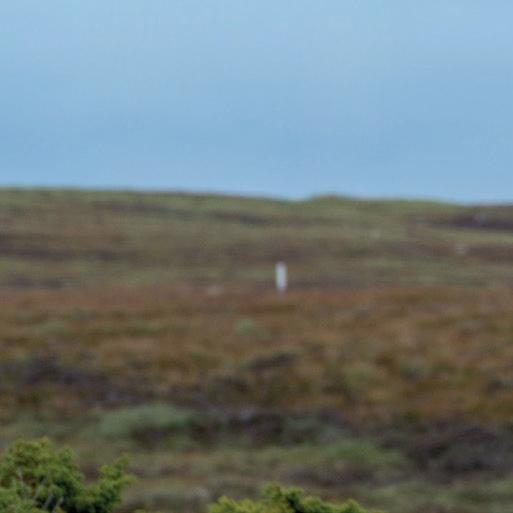


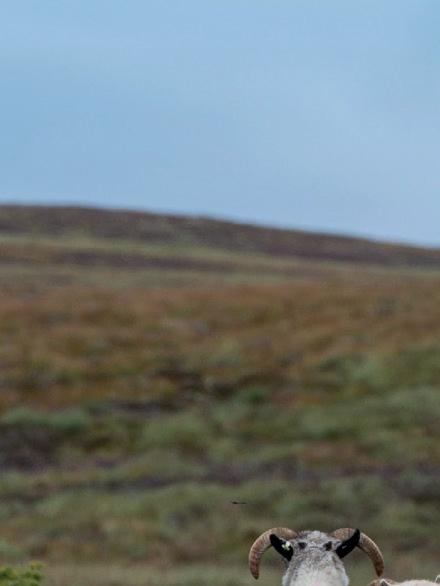
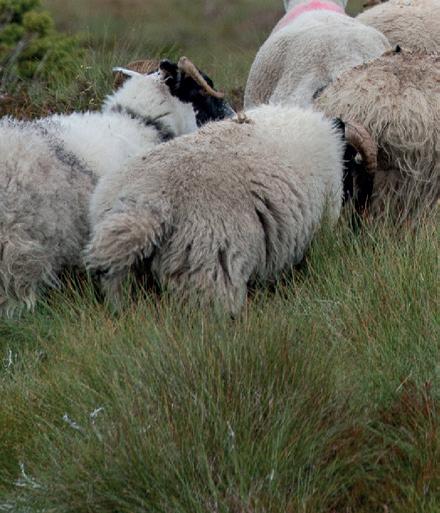
Find out what our team could do for you: shepwedd.com/rural-disputes




BAndrew Connon Vice-President (overseeing Food & Farming Policy)
e it weather extremes, flooding, pests, diseases, cheap imports, over supply or skinnings on malting barley, the reality is that the risk sits with producer. Combine these issues with poor crop prices and the risk/ reward equation doesn’t stack up.
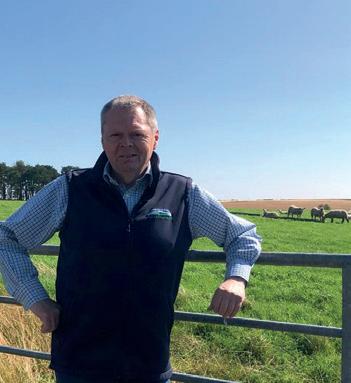




TAlasdair Macnab Vice-President (overseeing Climate, Land & Business Policy)
he last few months have been a whirlwind between Union work, family and farming. The weather hasn’t been kind for hay or harvest, man or beast.
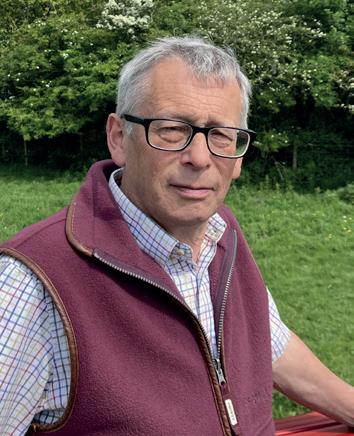
The arable sector has had a tough year. The much talked about huge demand for malting barley hasn’t been refl ected in prices being paid for what is deemed a premium crop. Disappointing spot prices have forced some producers to sell as feed rather than risk penalties with rejections. Growers need to see a decent price to give them confi dence. Discussions have taken place and further meetings with maltsters, distillers and the Scottish Whisky Association are lined up, and I have an invitation to speak at the Maltsters Annual Meeting in London in early November.
Finished cattle and prime sheep prices remain fi rm resulting in strong prices for stores and breeding stock which it is all needed. Milk prices are at last fi rming too. However, with several producers having been served notice from processors it is apparent how delicate the milk sector is at the moment and with huge investments having been made, yet again, the risk lies with the producer. Meetings with processors are ongoing.
Over regulation especially within our intensive livestock sectors is denting confi dence in investment. We continue
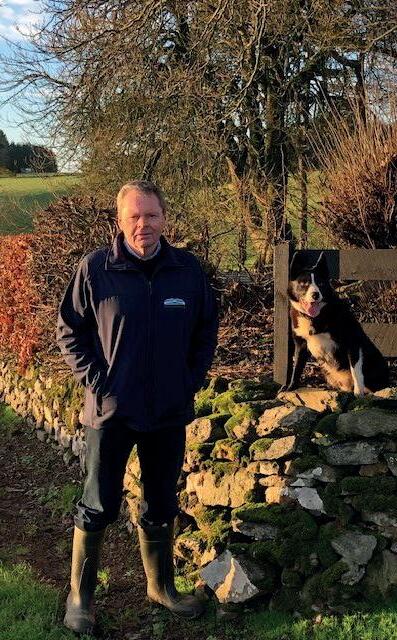
to challenge hard and ask for common sense to prevail.
Retailer engagement remains a key priority and meetings with the Agricultural Supply Chain Adjudicator have been held recently.
NFU Scotland work has been varied with lobbying in Westminster and Holyrood high on the agenda. Meeting MPs and MSPs is enlightening and encouraging as many are keen to know and understand more.
On lobbying the biggest task coming up is the draft Land Reform Bill. There was a lot of time spent working out, with staff and members, the consequences to the industry of the draft Land Reform Bill and meeting with many key stakeholders and members to discuss the implications and what action we can take. Now we take that to the politicians to seek understanding of the consequences.
Tenancy regulation is a big part of the draft Bill. We are lobbying strongly against the proposals for compensation on resumption. The impact on potential and existing landlords is significant.
On utilities, a first access protocol was published earlier this year. A revision will be out shortly and a final version due once meetings with all utilities are completed. Our aim is to make the process and accountability clear and understandable to all parties involved.
We’re working with SSEN to agree
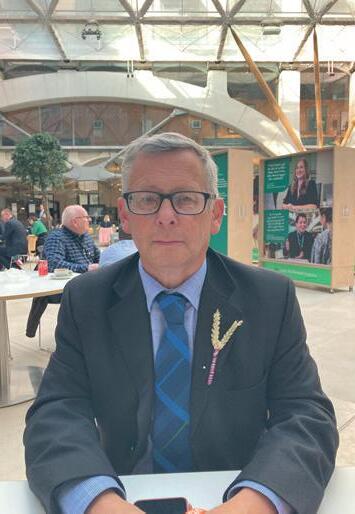
new design parameters for the proposed 400kV lines to accommodate safely the size of modern farm machinery and irrigation systems.
We’re also fighting to get action on the pernicious spread of bracken in the face of, at the moment, few practical solutions.
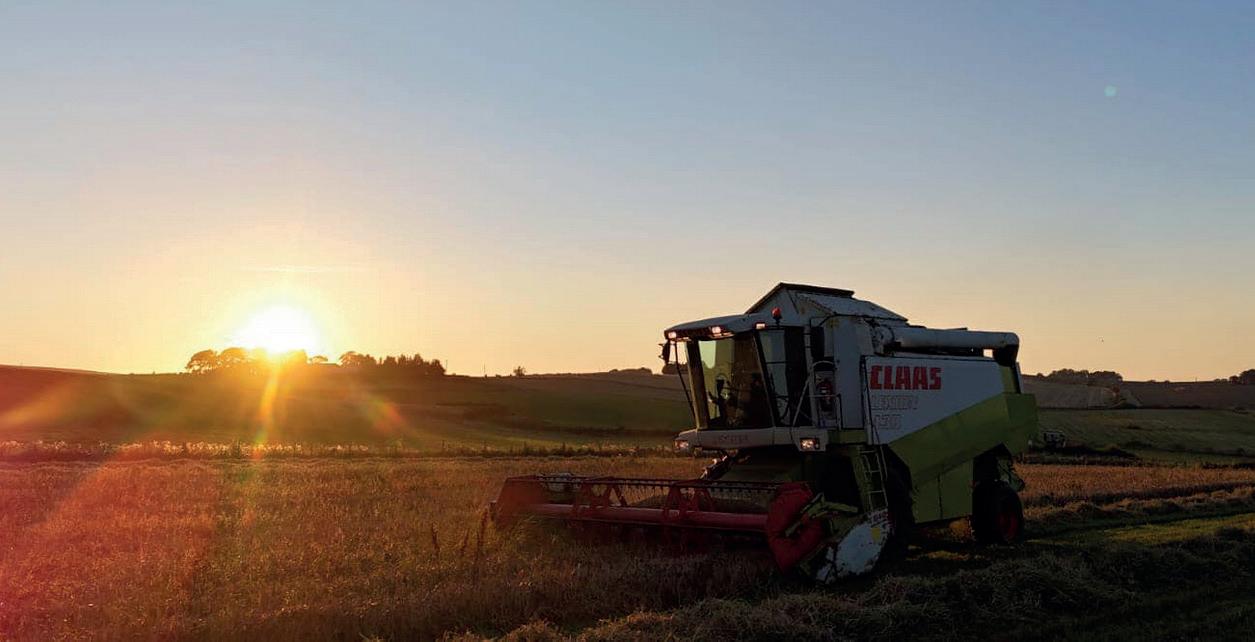
Scottish Quality Crops (SQC) have granted a derogation for Harvest 2024, regarding extending the temporary Storage of Grain due to current harvesting conditions. SQC has approved an extension to the period
With sheep scab reaching worrying levels in Scotland, Caledonian Marts at Stirling is trialling a sheep dipping service at its store and breeding sheep sales. Buyers can opt in to have the sheep dipped before leaving the mart, and they are separated out as they leave the ring.
Oliver Shearman, Managing Director of Caledonian Marts said: “Since we started offering the dipping in July, it has gained popularity at each sale. Sheep scab is becoming a real issue across the country, and this is such a simple solution to help minimise it in the national flock. Buyers have the
of temporary storage of grain to 30 November 2024. The certifi cation body will require details of grain still in temporary store (location of store, tonnage etc.) and the likely date that the grain will be moved. It may also be necessary for a spot check to be
undertaken to validate compliance with the requirements of temporary stores to protect the integrity of the SQC Scheme.
To request an extension for temporary storage you need to contact FIA on 0131 609 0558 or at info@foodassurance.co.uk
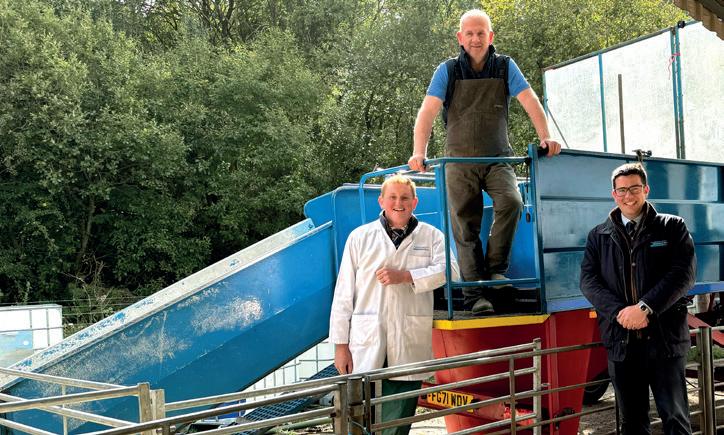
confidence that they are taking home clean stock and it’s one less worry, but it’s also efficient.
“It saves the work when you get home of unloading into the field, then taking them out again to be dipped and the time and effort that involves. It’s also good for smaller enterprises that don’t have
enough sheep to employ a dipper for a day on the farm.”
Caledonian Marts subcontracts the dipping on sale dates and the charge is £1.20 per sheep, added to the purchase price. The dipper will be available at Store Sheep Sales and Breeding Sheep Sales at Caledonian Marts.
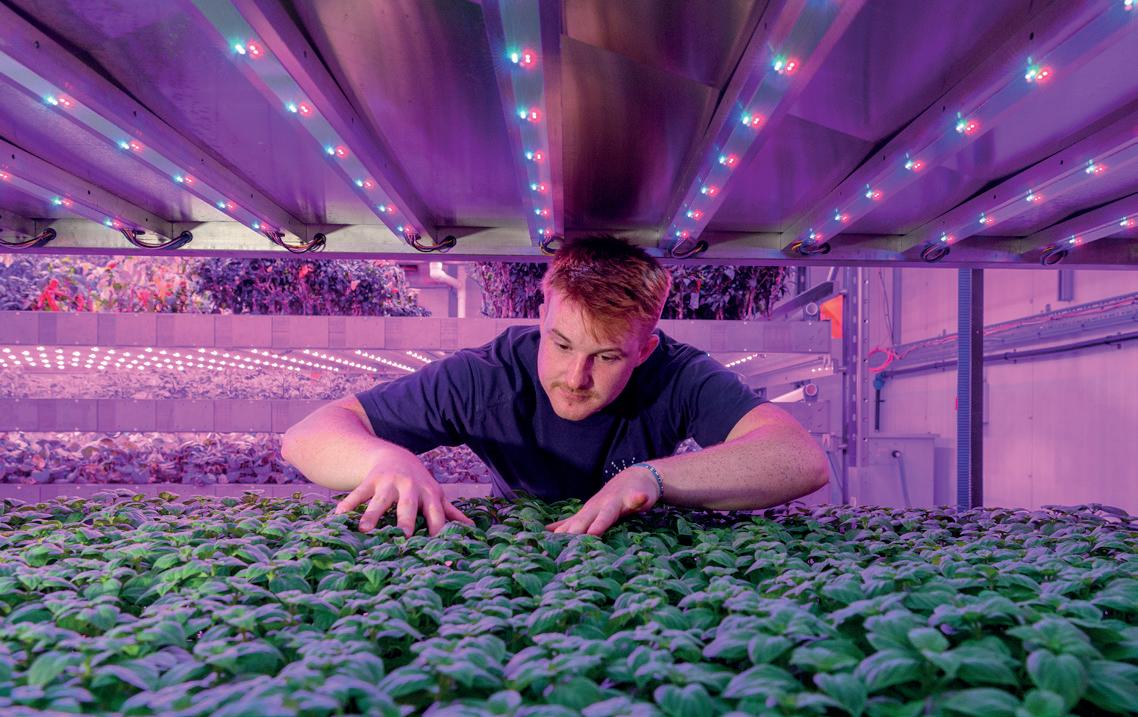
The James Hutton Institute (JHI) has secured £2.4 million to fund trailblazing research projects which include medical cannabis standardisation, vertical farming light technology and genetic optimisation of lettuce.
The three multi-year initiatives are designed to transform horticultural practice and utilise modern breeding approaches to further new products and services. They also have a focus on sustainability, advanced pharmaceutical applications and genetic research.
All three projects will take place at the Institute’s newly-established Advanced Plant Growth Centre (APGC), situated at its Invergowrie site. The APGC is part of the Tay Cities Regional Deal partnership supported by £45m from the UK Government and £17m from the Scottish Government.
The APGC combines fi ve core facilities, interconnected but independent, to facilitate scientifi c innovation and discovery.
The Light Pulsing in Vertical Farming for Sustainable Fresh Produce
We’re excited that we have a new partnership with Radius, which delivers market-leading connectivity solutions for its clients. Through this collaboration, NFU Scotland members gain access to a number of exclusive off ers, beginning with a SIM Only deal for unlimited data at just £9.95 per month.
The partnership with Radius is part of a broader commitment to provide added value to the farming community. By leveraging Radius’ expertise and member-focused approach, you will benefi t from discounted telecoms products and services tailored specifi cally for you.
• Dedicated Account Management: receive personalised service from a dedicated account manager to assist with all telecom needs, ensuring smooth and efficient support.
• Exclusive Member Offers: Beyond the SIM Only deal, you’ll enjoy ongoing access to exclusive discounts and offers, making it easier to save on essential services.
(LightPuls-VF) project will see the Institute become the home of stateof-the-art light pulsing technology. The research will aim to revolutionise how basil and other herbs are grown vertically – improving efficiency, nutritional quality and reducing energy consumption. The project is firmly focused on sustainability and improving food security and reducing the UK’s reliance on imported produce.
To read more about JHI work and projects visit www.hutton.ac.uk

• Exclusive SIM Only Offer: Unlimited data for just £9.95 per month, with no long-term contracts, allowing members flexibility and savings.
• Easy Switching: Radius offers a hasslefree switching process, enabling you to keep your existing phone number while benefi ting from reduced costs.
• Trusted by Thousands: Radius is already trusted by over 20,000 happy customers, known for the provider’s high-quality service and tailored telecom solutions.
For more information on the exclusive offer or to explore additional member benefi ts visit the Members Benefi ts section of our website www.nfus.org.uk or contact our Members Services Team on 0131 472 4000 option 3.


On 13 September, police were contacted by a local farmer from Auchengray, Lanark, to report that his quad bike had been stolen from a shed on his farm and he had been made aware of the theft by the tracking company from the tracker fi tted to the quad bike. The vehicle was eventually tracked to Fauldhouse in West Lothian where a vehicle that had been travelling with the stolen quad bike, was stopped and the three males within arrested. Tools were found within the vehicle including bolt cutters. The stolen quad bike was subsequently traced by police in a deep wooded area in Fauldhouse. This incident is a good example of fi tting trackers to farm machinery and vehicles to enable them to be recovered and handed back to the owner.

In recent months Police Scotland have seen an increase in thefts of quad bikes and all-terrain vehicles. As can be seen with the above incident, the persons involved in the commission of these crimes do not recognise boundaries and are travelling all over the country to commit these crimes.
How to protect your quad bike or ATV
• Park as close to your premises as possible, preferably out of sight from nearby roads.
• Remove keys when not in use.
• Fit wheel clamps and/or locking posts and consider an alarm.
• Park larger vehicles in front of access doors to prevent easy access.
• Mark or customise your property so it is easily identifi able. This can deter thieves and assist recovery if they are stolen.
• Consider tracking devices for high value vehicles and machinery.

Gill Scott has become the new Chair of the NFU Scotland Remuneration Committee.
Gill brings a wealth of experience to the role, with over 10 years of senior leadership experience as HR Director at Aegon UK, where she spearheaded multiple strategic change programmes, demonstrating her expertise in executive management, HR and operational transformation.
Gill said, “I am honoured to take on this role and look forward to working with the Remuneration Committee to support the strategic vision of NFU Scotland. It is vital that we continue to ensure the right frameworks are in place to attract and retain the best leadership, while promoting an environment where the organisation and its people can thrive.”
The Remuneration Committee is one of three key committees that supports the Union’s Board of Directors. Its remit includes advising the Presidential Committee on honorarium levels for elected offi ce holders, annual pay awards, and non-pay remuneration such as pension contributions and other benefi ts.
While the Chair of the Committee is an external appointment and is not a Company Director, Gill Scott will be invited to attend at least one main Board meeting annually.

Speak to your local Machinery Ring about opportunities when purchasing Case IH tractors, combines and balers.


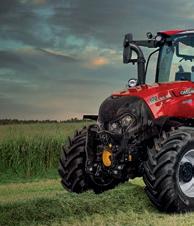
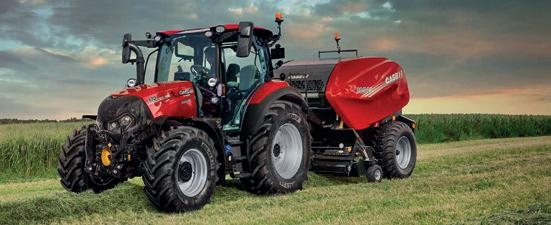

At NFU Mutual, we understand the unique opportunities and challenges that come with diversifying. Whether you’re exploring new ventures or enhancing your current operations, our local experts are here to provide tailored advice and comprehensive insurance solutions, so you can focus on what matters most.
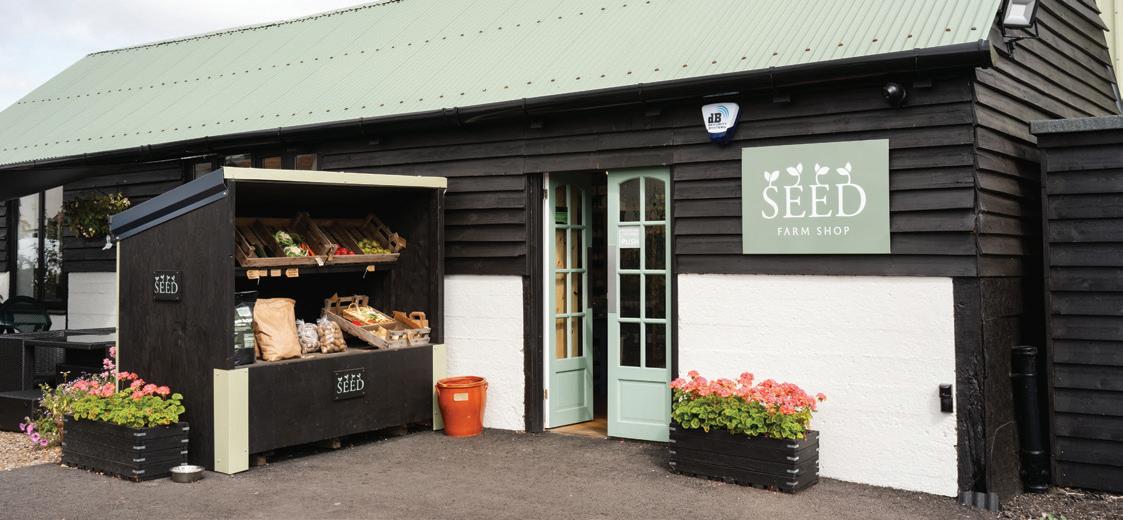
Scan the QR code or search ‘NFU Mutual Farming Diversification’ to discover the latest trends, expert insights, and inspiring real-life success stories.
ore than 100 members participated in the recent EGM to discuss and vote on proposed changes to the constitution. The resolutions were grouped into five categories, which in summary were:
1. Amending the construct and size of the Board of Directors
2. Appointment of Independent Directors
3. Providing more flexibility for Committees to function
4. Adding a new formal Sub-Committee (Remuneration Sub-Committee) of the Board of Directors
5. Updating some operational practice and language which is outdated, including adopting gender-neutral language.
Following votes on each resolution, all were passed with substantial majorities.
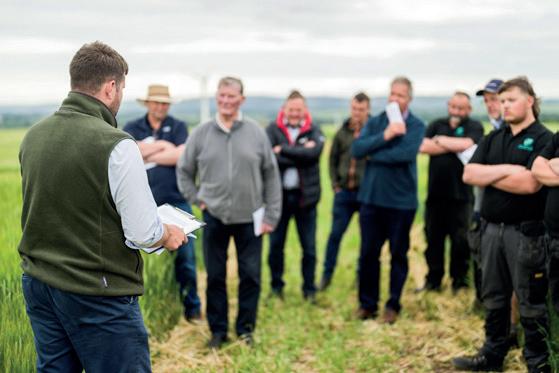
SAC Consulting has secured a contract to extend its partnership with the Scottish Government to deliver the Farm Advisory Service (FAS) One to Many programme until 2027.
Cabinet Secretary for Rural Affairs, Land Reform and Islands, Mairi Gougeon said: ‘I am pleased that SAC Consulting and Ricardo AEA will continue to deliver our Farm Advisory Service (FAS) for the next threeyears. Scottish agriculture is transforming, and it is more important than ever that farmers and crofters can access the right support at the right time.
“The FAS is allowing those in the agricultural sector to access crucial support that can prove vital to their businesses.”














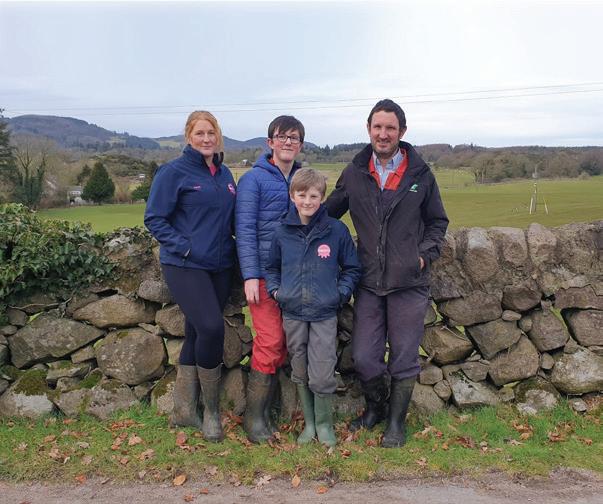

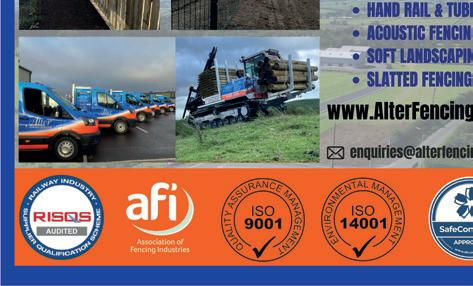













































of the finest Scottish fruit & nut trees, soft fruit & hedging for farms & estates - Both old & mainstream varietiesConsultancy Services Including: - Orchard Design - Ground Preparation Advice







- Variety Selection - Planting Services - Farm diversification, eco-tourism & cider/juice making diversification advice Wholesale prices available fororderslarger













063918 www.scottishfruittrees.com 2 Kelvinside Terrace West, Glasgow, G20 6DA








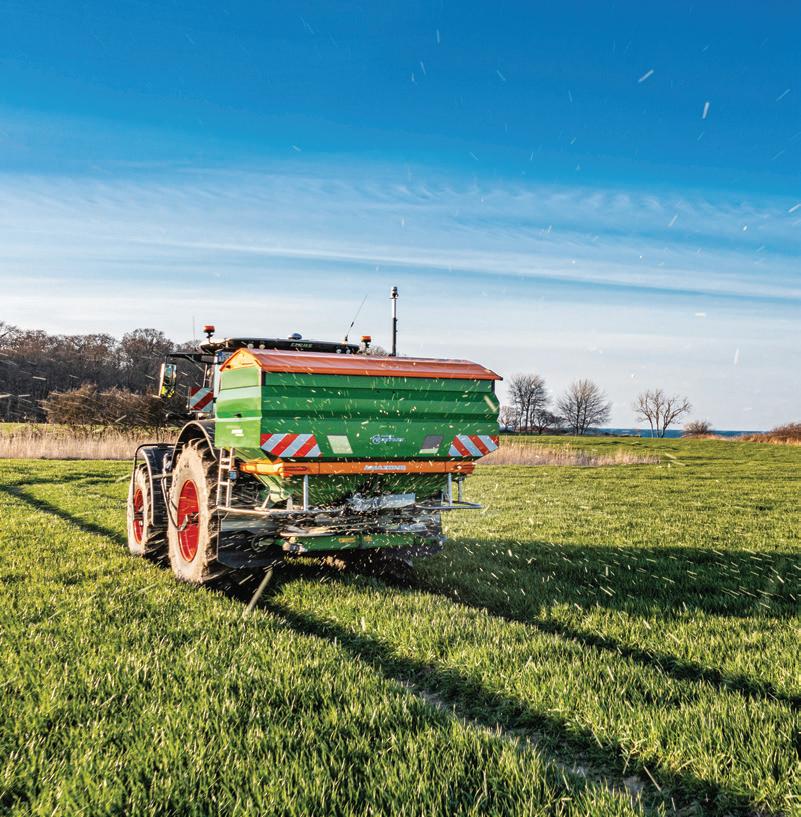
Find us at AgriScot 2024 to discuss our spreader range and what we have to offer. Our complete range is available in a wide range of specifications and price points, able to suit every farm and use case, with working widths from 10-54 metres. From our ZA-M with years of proven reliability, to our most advanced spreader, the ZA-TS with precision in a class truly of its own. Compatible with our precision farming options such as WindControl, online weighing and dynamic spread pattern optimisation.
All our spreaders are compatible with the Amazone mySpreader app for quickly finding spreader settings on the go. With over 100,000 individual spreader settings in our database to date.
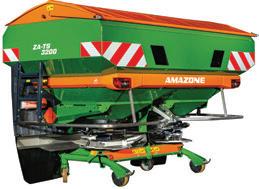

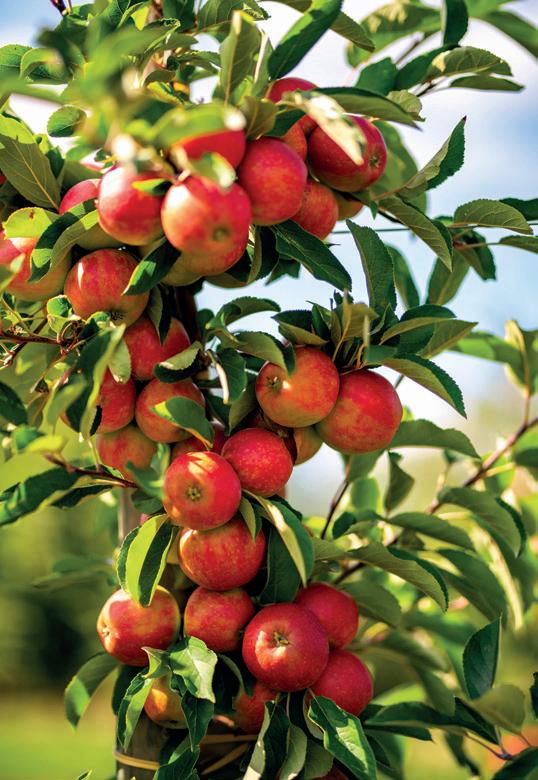

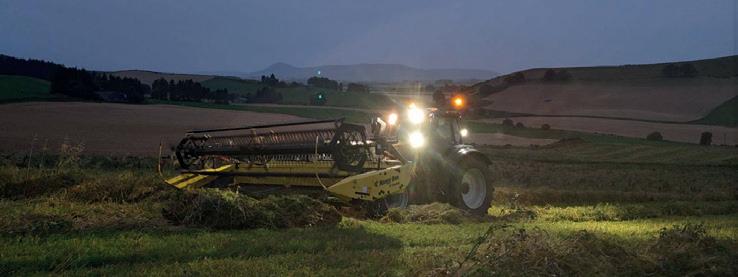



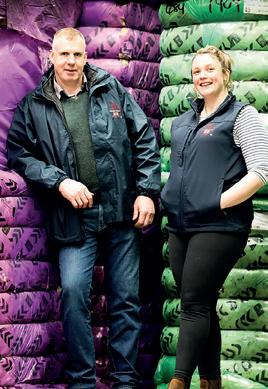

BRITISH WOOL HAS DEPOTS AND DROP OFF SITES ACROSS THE UK
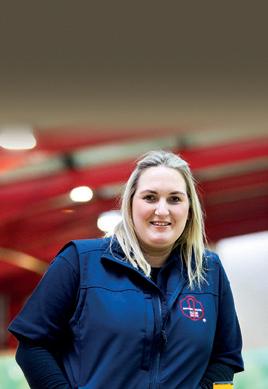

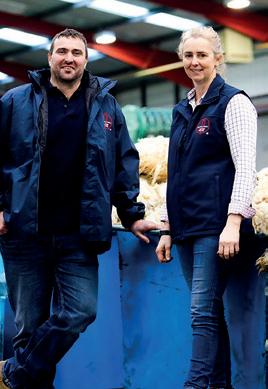


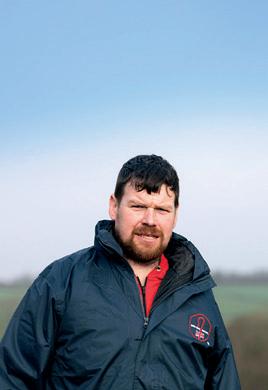

Some images of harvest 2024 in progress.
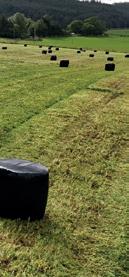

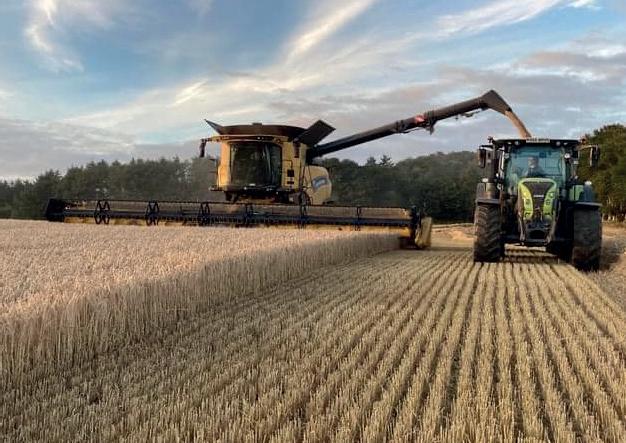
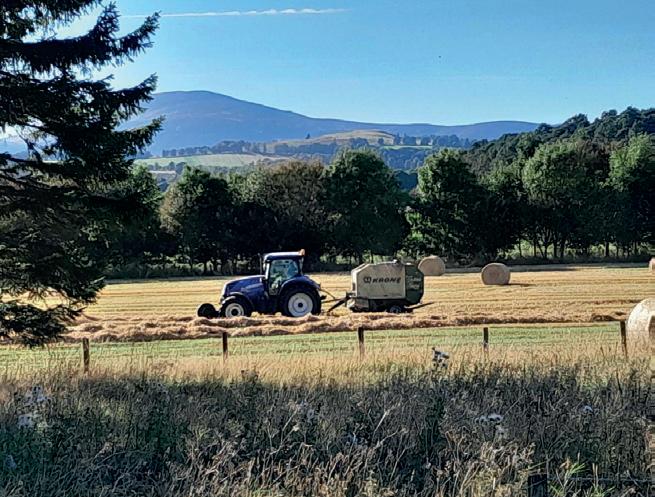
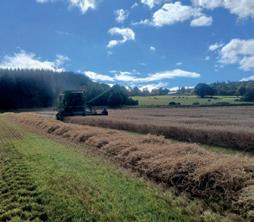
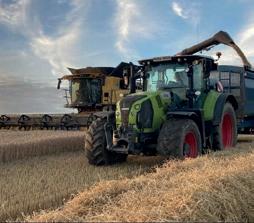
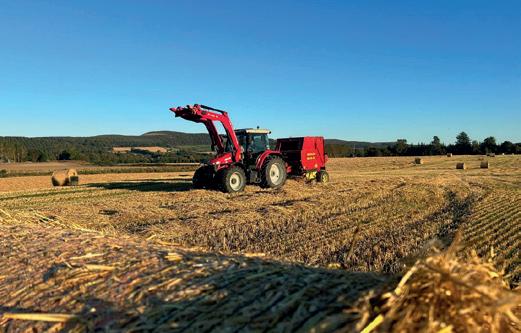
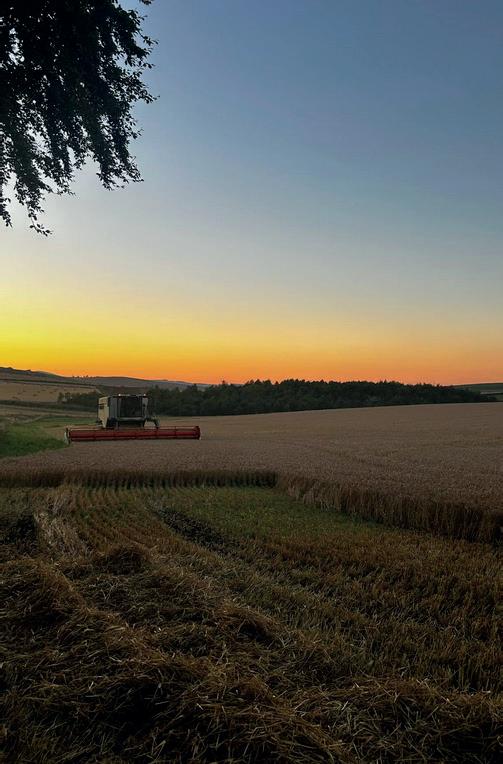
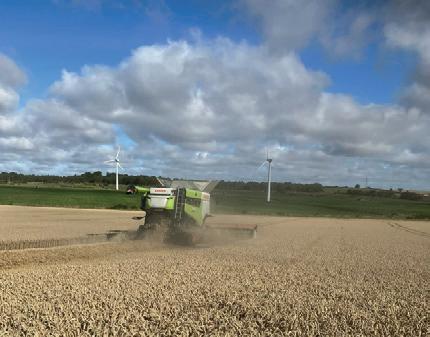
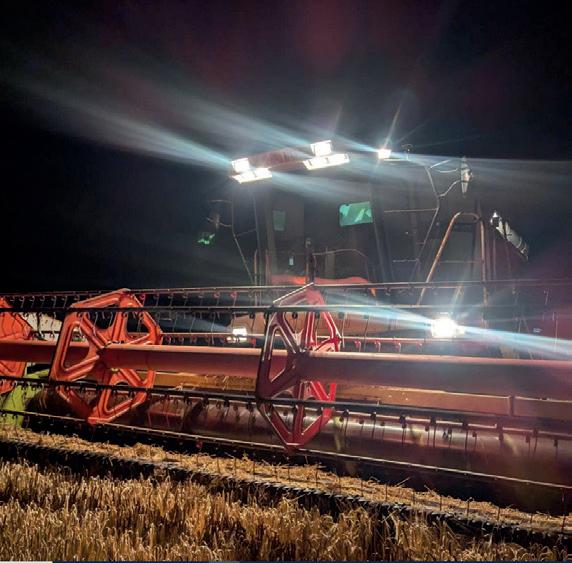


Ayr
t: 01292 265071
e: ayr@dains.com
K Kilmarnock
t: 01563 626000
e: kilmarnock@dains.com
G Glasgow
t: 0141 535 3113
e: glasgow@dains.com












Beatrice Morrice
Political A airs Manager



Al Walker
Political A airs Assistant
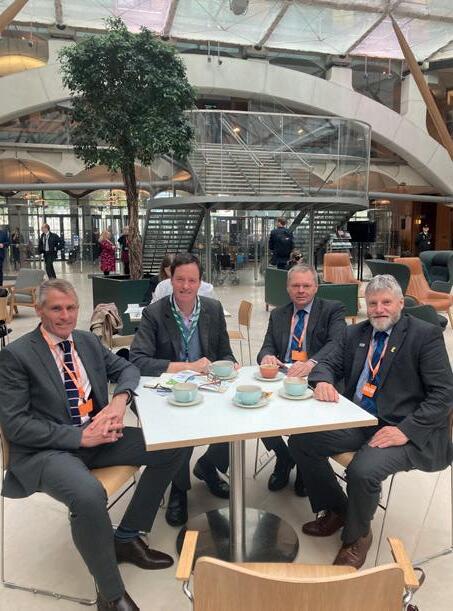
NFU Scotland is holding an exhibition in November at the Scottish Parliament to show how farmers and crofters deliver on high-quality food production, climate and nature restoration, and provide and support jobs across Scotland. As future agricultural policy continues to emerge, we will be engaging with MSPs and researchers to underline why continued future funding is essential to support a prosperous economy, respond to the climate challenge and help biodiversity recover and fl ourish.
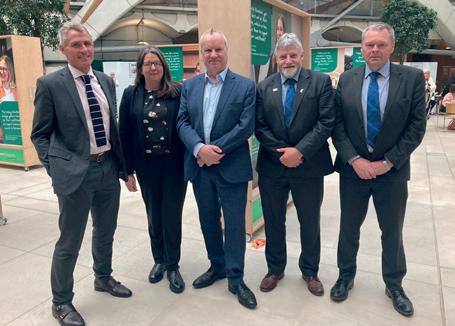
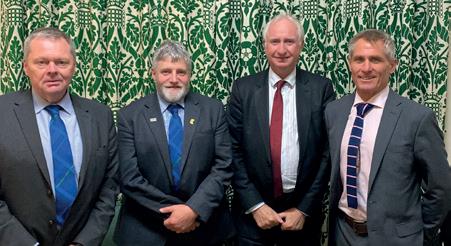
NFU Scotland met with the Minister for Food Security and Rural Aff airs Daniel Zeichner MP in London in advance of the UK Government budget on 30 October. We again called for an increased, ringfenced and multi-annual UK farming budget and while the Minister could not give any indication of what the Budget had in store, he agreed that certainty of support was critical to confi dence and outcomes. We made that case crystal clear and provided hard evidence on what direct support truly delivers - economically, environmentally and socially.
Other issues discussed with the Minister included; the need for an industry-driven approach to Bovine EID to be introduced; the need for an eff ective Competent Authority to be established to ensure the EU’s Deforestation Regulations do not adversely impact UK’s primary producers; concerns over any proposals to amend the new legislation governing milk contracts, given their intention to ensure greater fairness in the supply chain for dairy
farmers; and the potential damage for farm businesses that would arise from any suggestion to remove or reduce Agricultural Property Relief.
We also raised these issues, including the budget, with Patricia Ferguson Labour MP, the newly elected Chair of the Scottish Aff airs Committee, Alistair Carmichael Liberal Democrat MP, the newly elected Chair of the Environment and Rural Aff airs Committee, Angus MacDonald Liberal Democrat MP and Pete Wishart SNP MP.

Martin Kennedy, President, Jonnie Hall, Deputy CEO and Director of Policy and Beatrice Morrice, Political Affairs Manager, attended the Labour Party Conference in Liverpool. There they attended several events and met with many MPs and MSPs including the Scottish Secretary Ian Murray MP, Scottish Labour Leader Anas Sarwar MSP, DEFRA Secretary of State Steve Reed MP and Minister for Food Security and Rural Affairs Daniel Zeichner MP.
Throughout the two-days, the NFU Scotland team underlined the need for a ring-fenced, multi-annual funding commitment at the UK Government budget on 30 October and highlighted all that our sector delivers in relation to high-quality food production, providing and supporting jobs and climate and nature recovery.
The team also met James Rebanks, author and sheep farmer from Cumbria, who was a speaker at an event they attended.
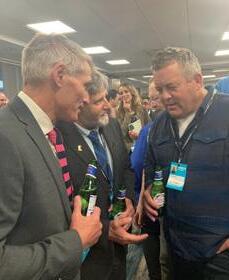


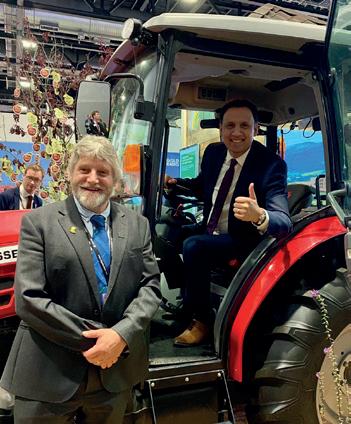

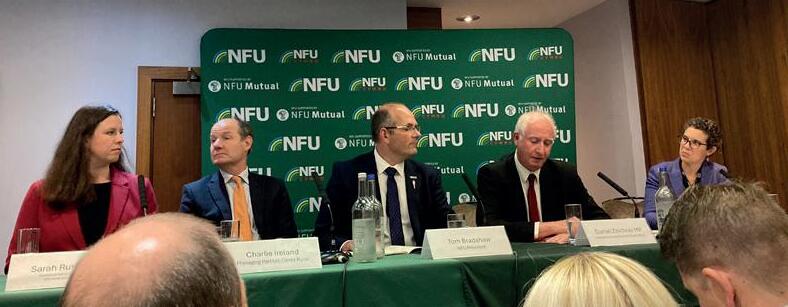
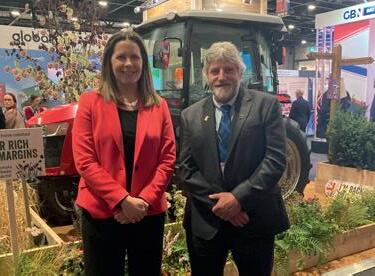
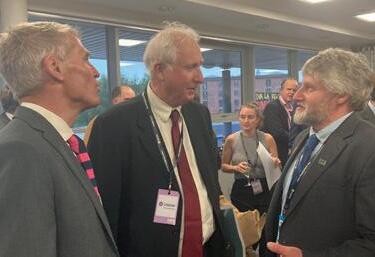

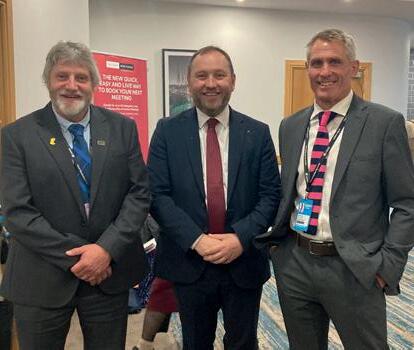
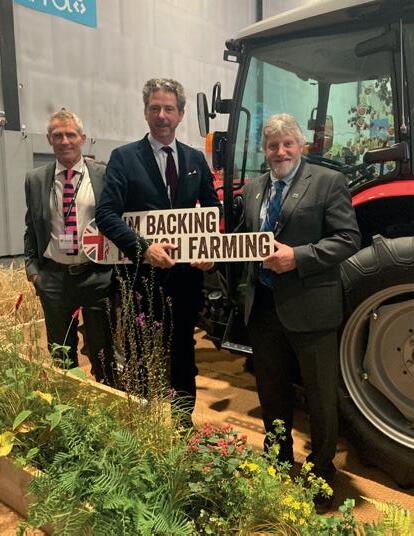
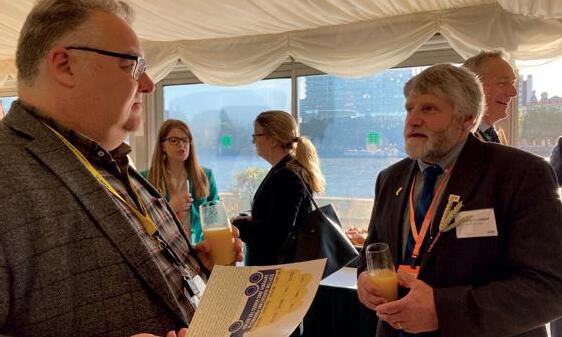
We attended a very busy
Back British Farming reception at the House of Commons at which we met many MPs including DEFRA Secretary of State Steve Reed MP and the newly elected Chair of the Environment Food and Rural Affairs Committee Alistair Carmichael MP.
We also met SNP: Seamus Logan MP, Graeme Leadbitter MP, Stephen Gethins MP. Pete Wishart MP.
Labour: Elaine Stewart MP, Lillian Jones MP, Richard Baker MP, Chris Kane MP, Joani Reid MP, Graeme Downie MP.
Conservative: Andrew Bowie MP, John Lamont MP, Harriet Cross MP, John Cooper MP, David Mundell MP.
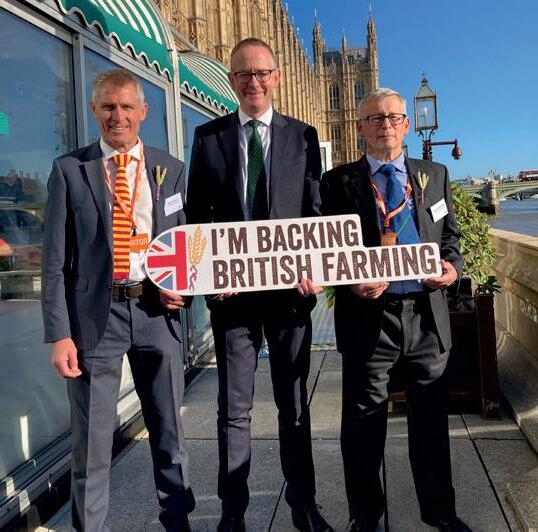
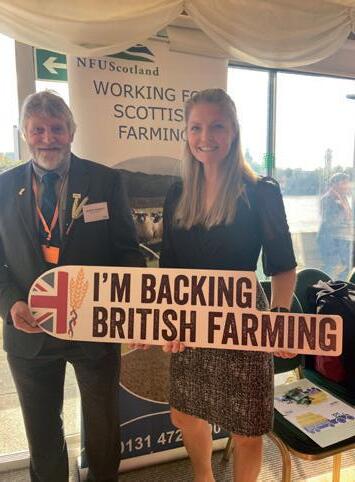

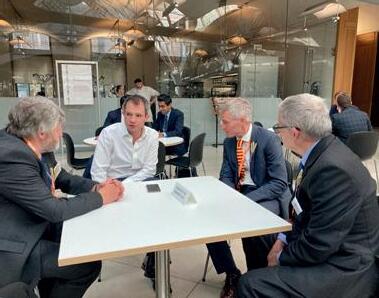
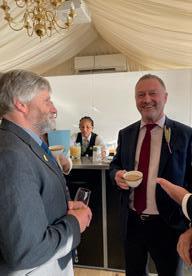
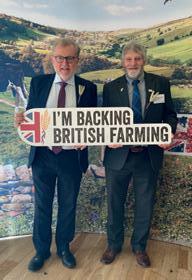



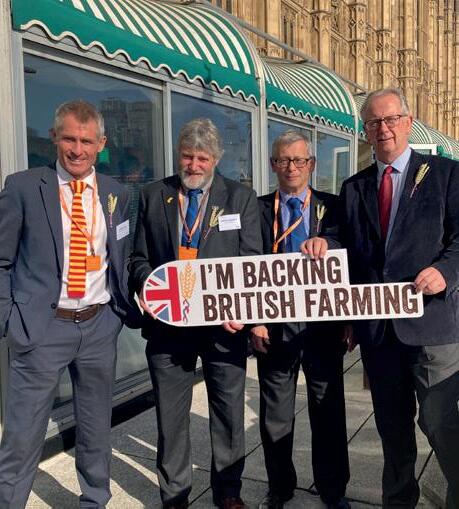
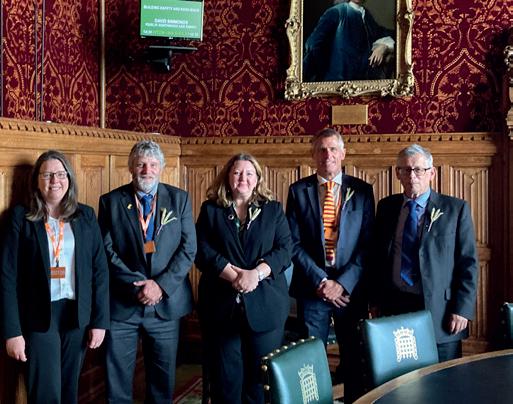

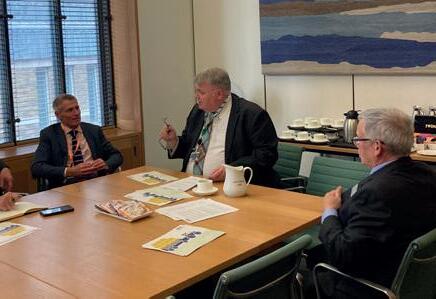

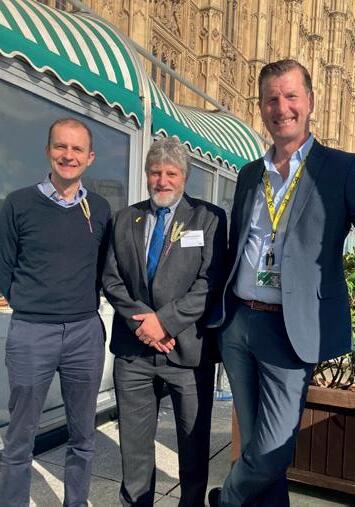
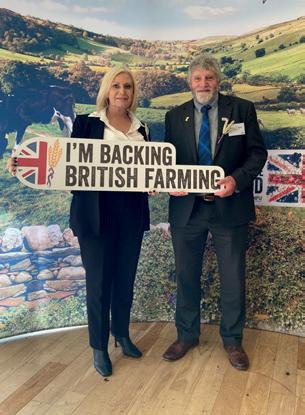
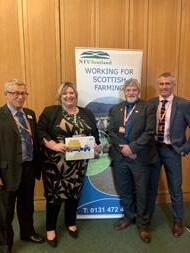
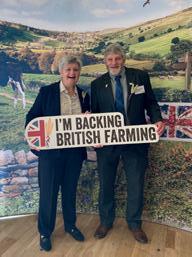

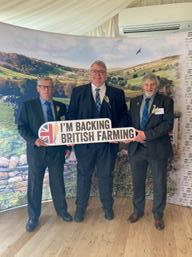
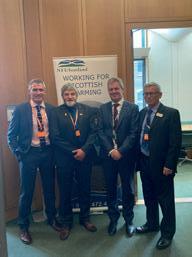
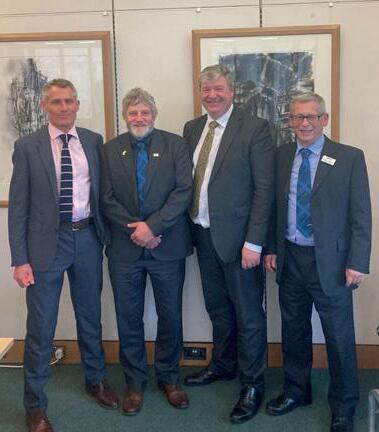
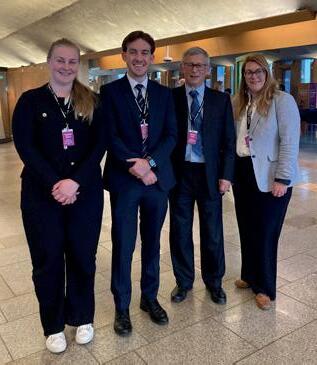
We held meetings on the Land Reform (Scotland) Bill at the Scottish Parliament in October. Vice-President Alasdair Macnab, Gemma Cooper, Rhianna Montgomery, Al Walker and Beatrice Morrice had discussions with Conservative, Green and the Liberal Democrat MSPs and researchers. We discussed the proposed thresholds for land management plans and sales and underlined the need to balance the rights of landlords and tenants. We also set out concerns in relation to possible impacts of the legislation on the availability of land for the next generation. Discussions will continue as the Bill goes through the parliamentary procedure and meetings with Labour and SNP MSPs are being held early November.
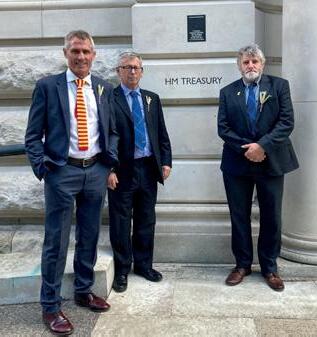
In September, we held a useful meeting with five Treasury officials at which we set out the need for multi-annual ring-fenced funding commitment for agriculture at the UK Government’s Budget on 30 October.




AJohn Flanagan Senior Policy Manager
t the time of writing, we had received 149 responses from around the country to our NFU Scotland annual harvest survey. (See graph which indicates geographical responses.) The survey results help inform NFUS with policy and trade discussions, as well as contributing to Scottish Government’s early crop estimates for Scotland.
It has not been an easy year for Scottish growers. The results highlight the impact that weather has had on Scottish crops, with huge variations in yield and quality. Early reports of grain analysis across the country indicated a wide variance in quality. Some grain required a lot of drying, with some having moistures as high as 24%. Reports are that there has been quite a lot of barley has not met the specification for malting.
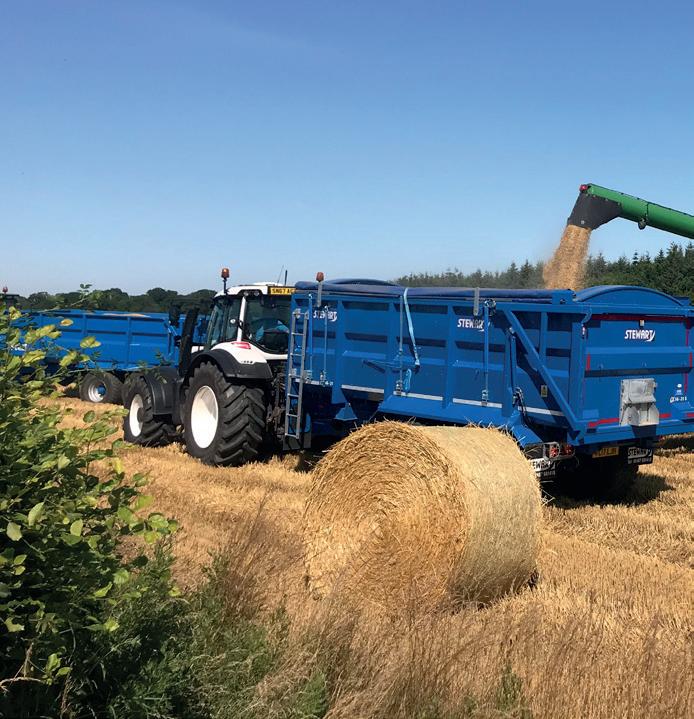
Comments provided by respondents presented a very mixed picture from around Scotland. Some have described this year’s crops as the toughest in 30 years, with a wet Autumn and Winter, followed by a late Spring. Harvesting conditions have also been tricky, with many being grateful for the good weather window over a better couple of weeks in late September. The variability in yields can be highlighted by some wheats yielding 6 tonnes per hectare (t/ ha) in some areas whilst others yielding as high as 11 t/ha.
Overall, the predominant crop grown on Scottish farms was Spring Barley, averaging 72.31 hectares on the 98 farms who responded. This was followed by Winter Wheat which averaged 75.29 hectares on the 45 farms that responded. See the graph (opposite)

which highlights this trend.
The average yields recorded by respondents to the survey were: Spring barley, 6.29 tonnes per hectare (t/ha); Winter Barley 7.26 t/ha; Winter Wheat 8.51 t/ha; Winter Oats 7.3 t/ha; Spring Oats 6.96 t/ha; Oilseed Rape 3.45 t/ha and Rye 7.0 t/ha.
There were small areas of peas and beans grown in Scotland according to the survey, with several respondents again saying it was a diffi cult year for some. Average yields are 5 t/ha for beans and 2 t/ha for peas.
A sincere ‘Thank you’ to all who took the time to participate in this survey. It really is invaluable and greatly appreciated.
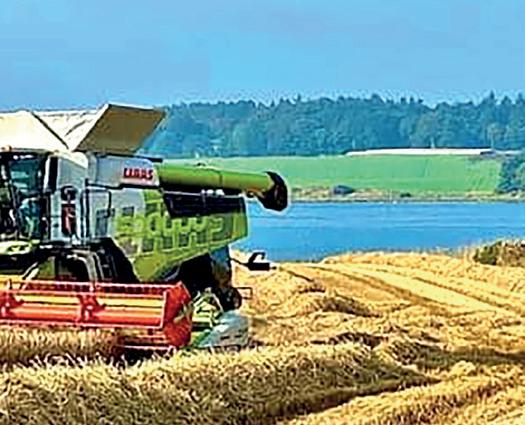


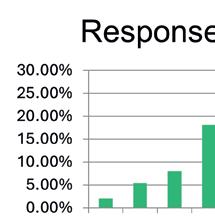
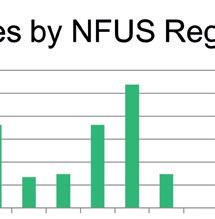

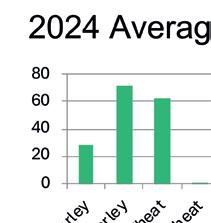

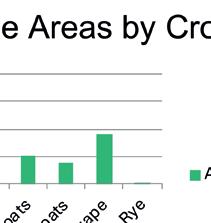



All respondents to the survey were entered into a prize draw with a chance to win a bottle of a bottle of Scottish premium gin. Congratulations to the winner of the draw - ‘W. Lammie & Sons’ from the Dumfries and Galloway region.
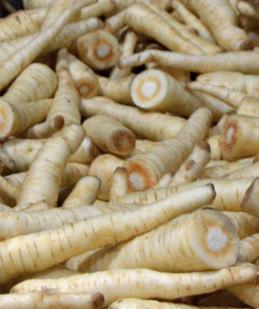
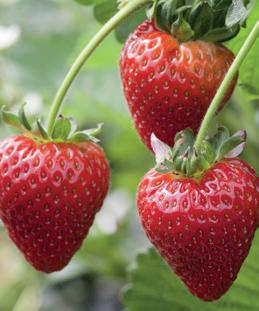

Horticulture is a relatively unsupported sector and, with consistent low market returns, the need for investment is increasingly important. The EU legacy Fruit and Vegetable Aid Scheme funding ends in 2025, with Scottish Government providing no clarity on whether there will be a replacement.




In 2023, the Scottish Government allocated up to £6 million for use 2023-2025. Scottish Borders Produce, East of Scotland Growers and Angus Growers all received a share of the multi-year funding, designed to help increase their competitiveness in the supply chain.
The scheme enables producers to work together, using investment and facilities to upscale and gain access to the most profi table markets - which might have previously only been available for the larger, more established producers. That means smaller growers particularly benefi t from this support.
Therefore, we want to highlight the importance of the scheme and the need for it to continue in its current form. We also want to make the case for this scheme to be an integral part of future Scottish agricultural policy.
Not only does this scheme deliver on the priority of increasing competitiveness in the supply chain, it also delivers a range of other outcomes, including improving the quality of produce and promoting the use of environmentally sound practices to mitigate climate change and benefi t nature.
The scheme requires a long-term operational plan to justify capital funding that must be match funded by the Producer Organisation. We need a long-term commitment of three to fi ve years on the scheme. Knowing that we have a programme that spans multiple years offers the growers confidence and security in making long-term investments, particularly when it comes to innovation and technology.
This is an excellent mechanism to deliver climate mitigation and adaptation, nature restoration, and highquality food production policy priorities.
We’re therefore urging Scottish Government to provide certainty on the future of the scheme by January 2025 at the latest to enable the industry to plan for the 2026 growing season.

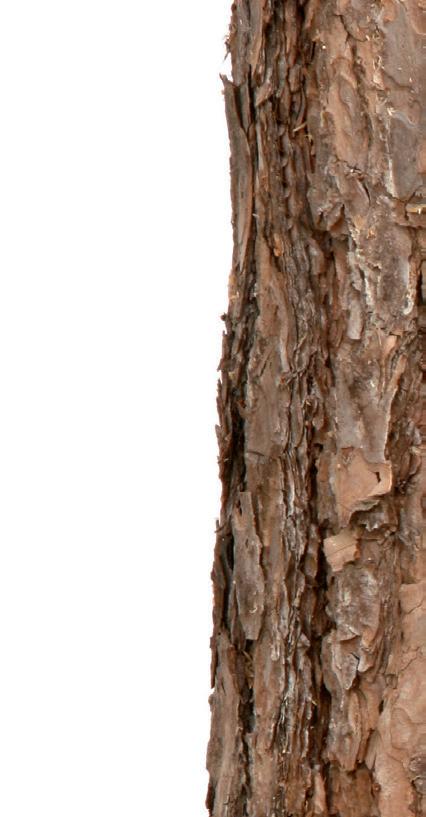










APenny Middleton Policy Manager
t time of writing this article we do not have any High Pathogenetic Avian Infl uenza (HPAI) cases in the UK but we as we move into autumn/winter and the migratory birds return from their summer breeding grounds the risk of infections starts to increase. We have been seeing HPAI cases detected in wild birds across the UK, reminding us that disease has not gone away and
Don’t forget if you keep even a few hens or other fowl, you must register your birds on the new Kept Birds Register by the end of December. A link to register your birds can be found on Scottish Government’s Avian Infl uenza pages.
H5N1 is eff ectively currently endemic in the UK. Cases have dropped, and fewer cases of mass mortality have occurred, probably refl ecting a level of immunity starting to build up in wild birds, but disease is still out there.
A new strain H5N5 of HPAI has been detected in a small number of wild birds in the UK and epidemiologists will be watching these cases to see if they pose a risk of becoming a ‘new wave’ of infection for naïve birds. Offi cials are tracking HPAI cases across Europe and following the migratory pathways of the migratory bird populations to monitor the risks for the UK.
Keepers should remain vigilant and practice stringent biosecurity to protect
the health and welfare of their birds. After a quieter period without cases of HPAI it is all too easy to become complacent about biosecurity so we urge all keepers of poultry, including those with only a few hens around the yard, to review your biosecurity measures and ensure you are doing all you can to protect your birds. It is also important to review and update your contingency plans for managing a disease outbreak or movement restrictions in a disease control zone. Further information on HPAI, identifying disease, best practice biosecurity measures and contingency planning can be found on our website or on the Scottish Government’s avian infl uenza pages.
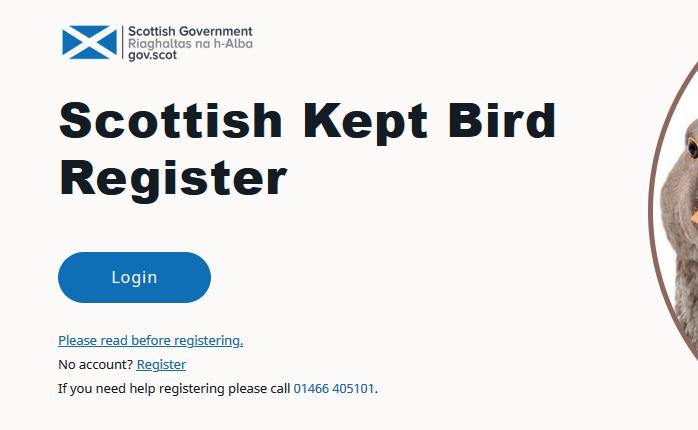
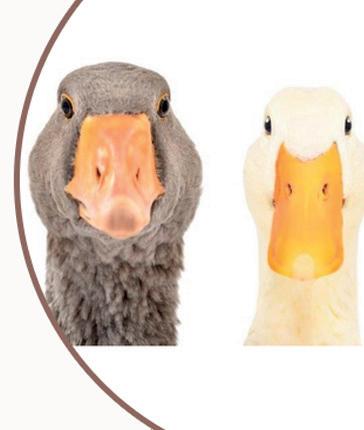
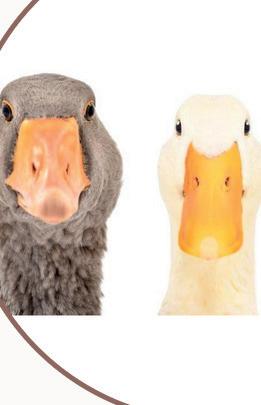

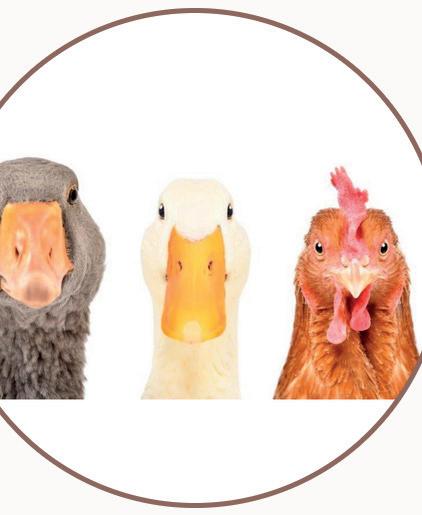

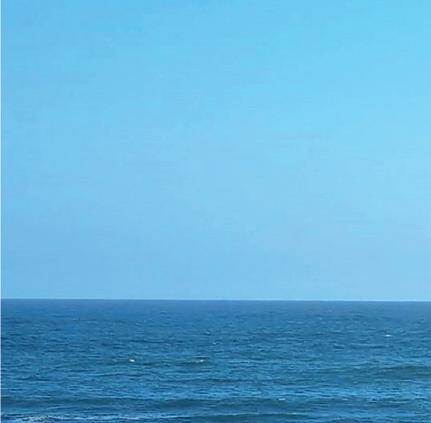


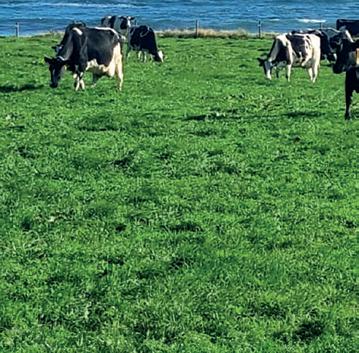


OTracey Roan Policy Manager
ver 40 international buyers and 60 UK businesses participated in an event to boost dairy exports worldwide in September.
The dairy sector exported £2 billion worth of goods to over 130 countries last year, and the Dairy Showcase project, delivered in partnership with AHDB and crossindustry support, aims to build on this further.

The week-long series of events aimed to help overseas buyers understand the high standards of British dairy farms and dairy production across the whole supply chain. Visits included tours to dairy farms and processing sites, all highlighting why the UK is one of the best dairy-producing countries in the world.
The Dairy Showcase was developed by the Government in consultation with the Dairy Export Taskforce, which includes sector bodies such as the NFU, Dairy UK, and AHDB. It is funded and delivered through the £1 million Dairy Export Programme announced at the Farm to Fork summit in 2023.
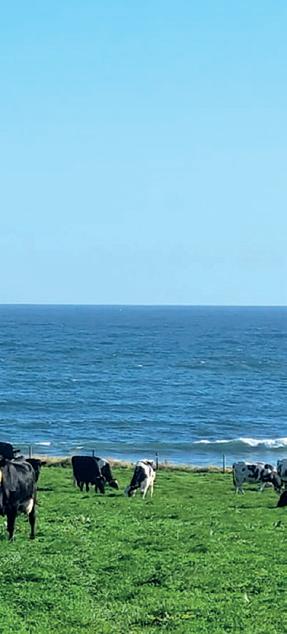
Areduction in the number of dairy farms in Orkney has resulted in supply issues on the island, with Tesco’s in Kirkwall unable to stock local milk.

The number of dairy herds on the island has been on the decline for several years. Ten years ago, there were 20 herds on the island, milking just under 2000 cows. Today, there are just thirteen herds, milking 1623 (Scottish Dairy Cattle Association).
Why
The aging dairy farming population has led to a wave of retirements, with three dairy farms leaving the industry in the fi rst half of 2023.
Solution…
The Development and Infrastructure Committee at Orkney Council has supported developing an Orkney Dairy Support programme. The full details of the programme are unknown at this stage, however, it has been suggested that there could be funds available for dairy farmers to implement modern effi ciency measures.
This new fi nancial injection is hoped to help revitalise the dairy sector and ensure the long-term sustainability of Orkney’s milk supply.
Scottish Dairy Hub & Kite Consulting Dairy Seminar at this year’s AgriScot
Bring your questions for the panel at this year’s Dairy Seminar chaired by myself and Senior Consultant at Kite David Keiley.
13 November at 1pm, Seminar Room (above the main entrance)


Sarah Cowie Senior Policy Manager
Environment and Land Use (ELU) Committee Chair, Peter Douglas and I attended two conferences recently to take part in critical discussions around biodiversity and land use. First up, we joined the snappily titled ‘EUFRAS IALB SEASN’ Conference, hosted by SRUC. It brought together agricultural advisory services from across the Europe to discuss the all-encompassing challenge of getting to net-zero. Central to the discussions were themes of innovation, the importance of people, and the need for eff ective policy adaptations to support farmers and rural communities.
One of the key takeaways from the conference was the potential for science and technology to drive adaptation in agriculture. We need to take advantage of technology to optimise the use of





our land, improve effi ciency and deliver multiple outcomes.
We also talked extensively about the importance of farming with nature, highlighting how agricultural practices and protecting biodiversity are inherently tied together.
With climate change threatening both agricultural production and some species, we need to take a holistic approach to ensure that we are reducing our emissions, while at the same time producing food and providing for biodiversity.
But key problems persist. There is a signifi cant disconnect between policy development and the realities faced by
everyday farmers and crofters.
This was also the message at the ‘Land Use for Net-Zero Hub Event’ which was also held in Edinburgh. Again, we attended to network and collaborate with people within agriculture but also the wider land use sector.
Overall, these conferences highlighted the scale of the challenge we have ahead of us. But that the answers lie in collaboration, innovation and most importantly – people. By harnessing all of these things we can ensure the agricultural sector not only adapts to climate change, but builds a more resilient, effi cient and profi table sector that thrives to and beyond 2050.
Ian Davidson Scottish Land Matching Service
Over the summer I had the good fortune to attend a few real local shows. It was great to see the continuing dedication and enthusiasm that keeps these vital community events a fixture in the annual calendar. The number of young people helping to show sheep and taking part in young handlers’ competitions was really encouraging sign that the skills are being passed down through the generations. Whilst that is great to see, we need to ensure that policy makers take a long-term view and help provide the opportunities for the next generations to flourish.
Farming and crofting are the backbone of the wider rural economy and deliver benefi ts on so many fronts across Scotland. At Scottish Land Matching Service, we’ve recently seen an increase in the number of farming opportunities coming
forward. As ever they cover a wide range across the sector, and we’ve been encouraged by being able to turn that interest into a few “matches”. They all take time. It is important to reiterate that one of the key aspects of any match is building a relationship based on clarity of objectives, flexibility and most importantly trust. We can help facilitate discussions to get to the best agreement for everyone involved. Please don’t hesitate to get in touch with us for a confidential discussion – contact details are on our website www.slms.scot.
Back to the local shows and here in the Lammermuirs, the last Saturday in September is the date for our show held at Ellemford Bridge. We had a great turn out of stock, vintage tractors, crafts, baking, flowers and vegetables. As you may recall from previous updates, one of my hobbies is growing dahlias and I was delighted to win best exhibit in the flower section this year – see photo.
A real highlight of the show each year is the auction of produce, ably conducted by Andrew Hutcheson. We were all stunned when a fruit cake sold for £110 – makes blackie tups look cheap!





Rhianna Montgomery Policy Manager
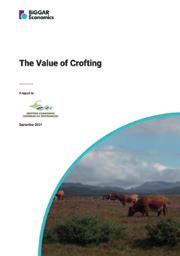
The Value of Crofting, a report commissioned by the Crofting Commission was an eye opener on the vast benefits crofting provides to the economy. The report, carried out by Biggar Economics, looked at the financial, social and environmental impact crofting had on its local economy and the wider Scottish economy.




Lisa Hislop Livestock Policy Manager
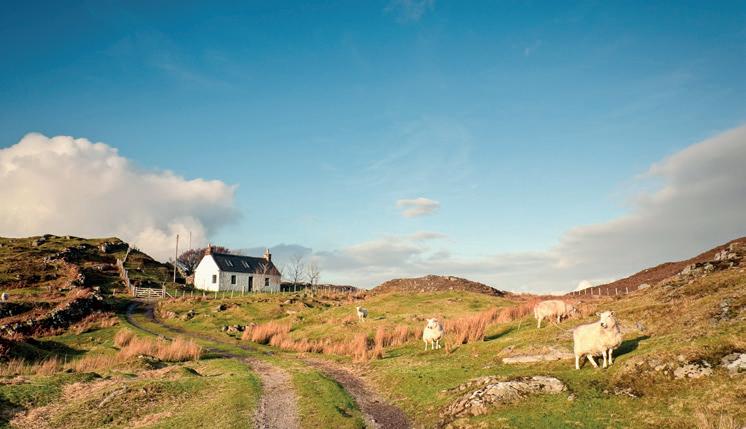
Key findings from this report are;
• Crofting contributes £588 million GVA (gross value added) to the Scottish economy annually.
• The sector supports 30,385 jobs across Scotland.
• 80% of the wealth generated by crofting stays within the crofting counties.
• Every £1 of public investment in crofting generates £13 GVA for the Scottish economy.
These figures highlight the importance of crofting to local communities. This is something we must protect and nurture to ensure crofting can continue delivering these staggering benefits.
You can read Vice-President Alasdair Macnab’s blog on our website and the full report can be found on the Crofting Commission website.
This month we kicked off our Winter Webinar series ‘Policy Unpacked’ with all you need to know about Scottish Suckler Beef Support Scheme (SSBSS). A recording of this webinar is now available on our website. The next events are on the following date and times.
• 7 November, 6pm - Policy Unpacked: All you need to know about Peatland Restoration and the Peatland Code.
• 11 December, 7pm – Policy Unpacked: All you need to know about Tenancies.
For more information and details on how to register visit www.nfus.org.uk

We are quickly approaching the new iteration of the Scottish Suckler Beef Support Scheme (SSBSS) with the introduction of calving interval conditionality. This has been discussed and debated at length but there remains a significant amount of misunderstanding on what is changing. That’s why we hosted a members’ webinar on 29 October to give an overview of what is changing, our involvement with the reform and what’s required going forward to access the calf scheme. In case you missed the webinar a recording is available on the members’ section of the website along with other resources including a Business Guide Update.
QMS Cattle and Sheep members will have received correspondence from QMS giving an overview of the proposed changes to the standards ahead of next year’s changes. This is part of the new process for QMS which slows down the changes to the standards and integrates two opportunities for feedback. The fi rst stage was early this year and focused on feedback on the existing current standards. We collated NFU Scotland member feedback via the Livestock Committee this included comments on the number of standards and areas of duplication. The QMS team then collated all feedback and held a thorough review the Standards Setting Body to agree any changes. This then brings us up to this point whereby you can give feedback to QMS on the proposed changes. Further to this we will be discussing the proposed changes at the next Livestock Committee meeting on 27 November, you can feedback any questions or comments to your regional Livestock Committee representative at monitor meetings ahead of the national Committee meeting.
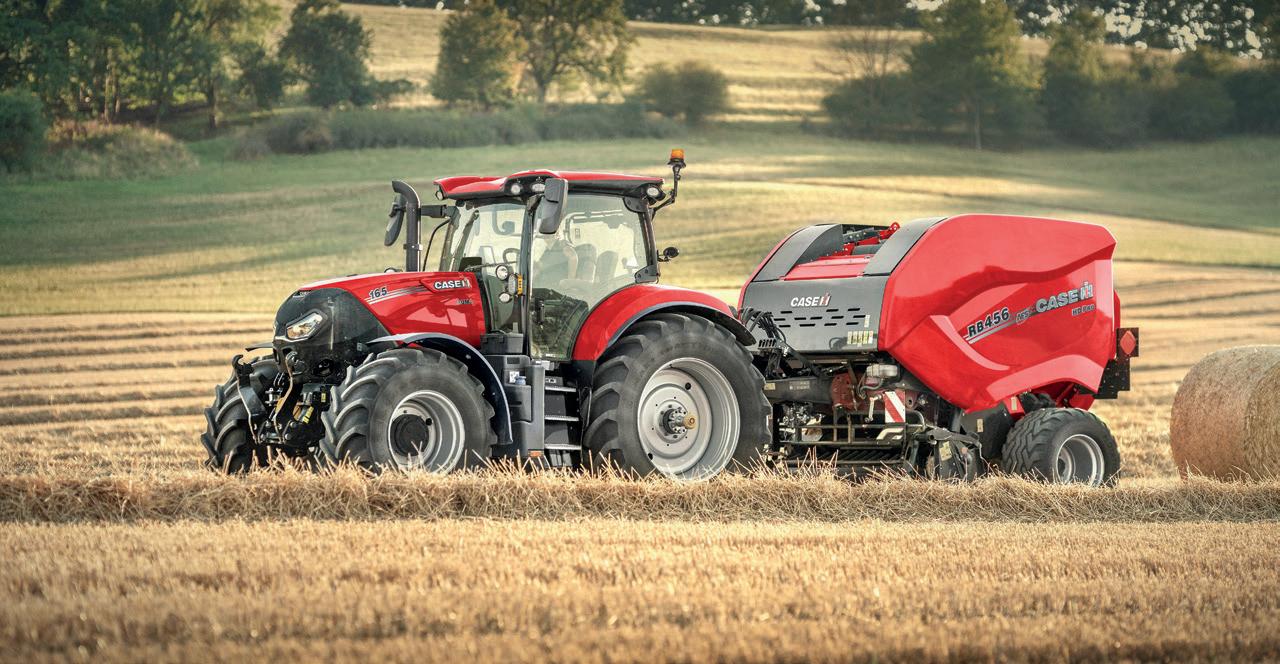
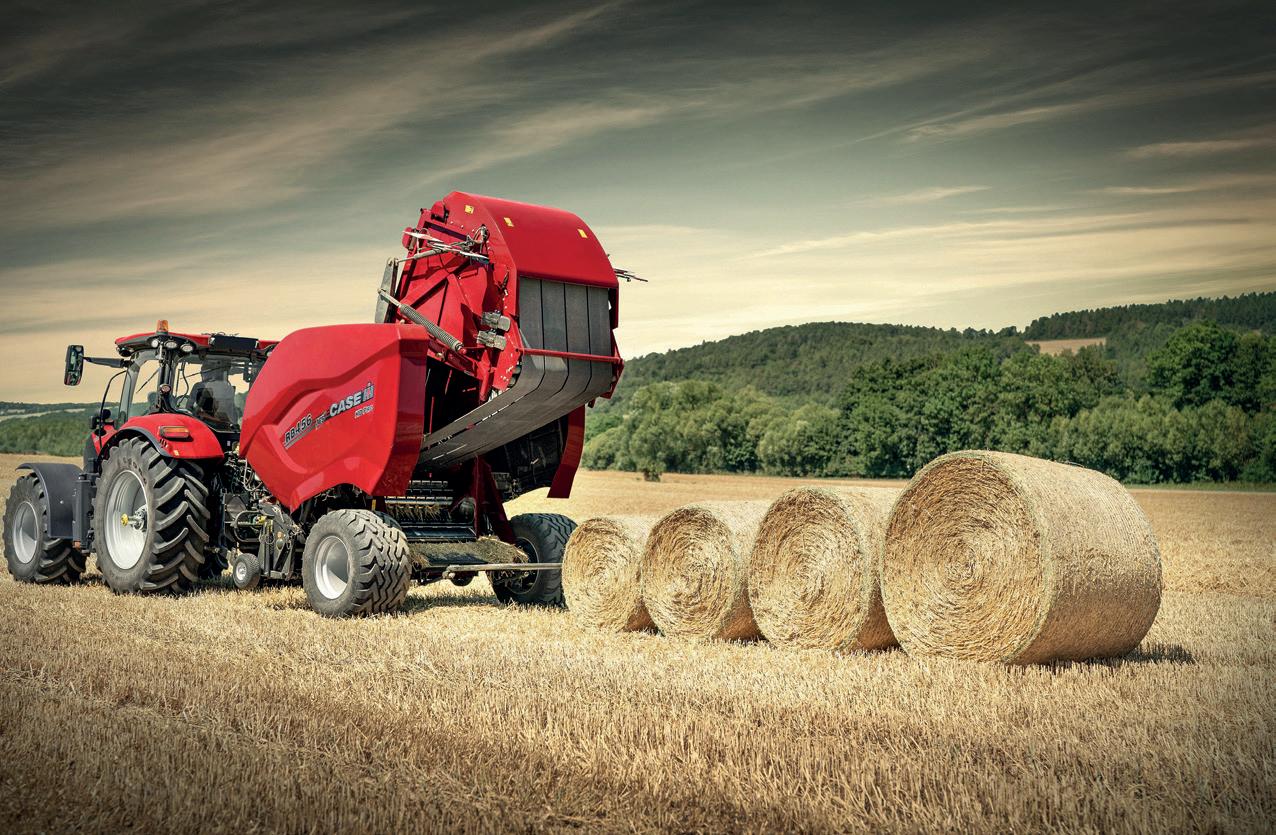


Scottish Machinery Rings are working in partnership with Case IH dealers to provide an exclusive rebate for members on their latest machines including the RB HD Pro Variable Chamber Series.
These balers are the perfect all-rounders. With a heavy duty design, these balers rely on a robust drive line and premium material for maximum lifetime and minimum downtime. The choice is yours with two models to produce bales up to 165 or 190cm, and RotorFeeder or RotorCutter options with 13 or 25 knives.








Jonnie Hall Director of Policy
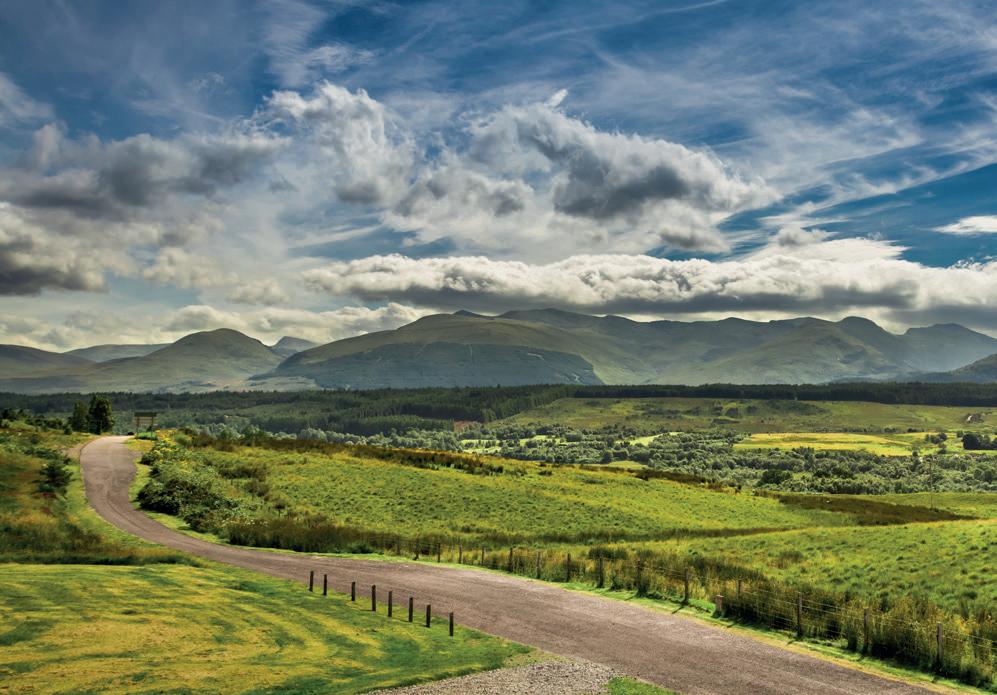
In our Budget Submission to HM Treasury, we made it clear that there must be an increase of at least an extra £1 billion to the UK farm support budget, taking it from £3.7 billion to at least £4.7 billion per year. Moreover, this funding
ensure policy outcomes can be delivered. The current, and very historic, 17 percent share Scotland receives is far exceeded by Scottish agriculture’s contribution to today’s economic, environmental and social policy goals.
Any reduction in funding could threaten the viability of these communities, potentially leading to depopulation and socio-economic decline.
must be both ring-fenced and committed on a multi-annual basis.
However, in addition to our relentless lobbying on future funding needs, we have continued to press for the allocation across the four nations of the UK to better
We are not alone either. The Bew Review in 2019 partly focused on how the Common Agricultural Policy (CAP) funds should be allocated across England, Scotland, Wales, and Northern Ireland, and in doing so considered the unique

agricultural circumstances of each nation.
The Review’s findings and recommendations made it clear that a reallocation of farm funding across the UK was required – recognising the need to correct past imbalances and ensure a fairer distribution of future funds if today’s policy outcomes are to be attained.
There’s no doubt the ending of CAP support structures has created uncertainty for Scottish farmers, many of whom remain reliant on support. As a result, there is now a need for a domestic replacement system that considers the specific needs of Scottish agriculture – a devolved and bespoke approach is needed.
However, it’s also critical that Scotland receives its fair share of funding in the new UK agricultural policy framework, helping to protect farmers from economic disruption caused by the loss of CAP payments and enabling them to deliver on the new objectives of agricultural support set by both the Scottish and UK Governments.
The Bew Review recognised that Scotland has distinct agricultural challenges compared to other parts of the UK. As a result, it recommended an additional allocation of funding to Scotland over a multi-year period – which the UK Government accepted. This was in response to the fact that Scotland was previously underfunded in comparison to the size of its farming sector and its specific needs, given the historical (fossilised) allocations of production-based CAP schemes that ended in 2004.



Scotland has some 54 percent of the UK’s total LFA. It follows that Scotland is relatively less productive and faces higher operating costs. Struggling with lower outputs and harsher conditions, making it harder for many farms and crofts in Scotland to remain viable without targeted financial support. More funding is needed to ensure that most Scottish farmers and crofters can remain sustainable - both economically and environmentally.
Agriculture plays a critical role in the Scottish rural economy by underpinning jobs, businesses and communities.
ensure the vitality of these rural areas by providing a stable income stream for farmers and crofters and supporting local economies.
Scottish farmers and crofters also manage a significant portion of the UK’s natural landscape, contributing to biodiversity, water management, and carbon sequestration efforts. Some 60 percent of the UK’s peatlands and 34 percent of the UK’s designated sites are in Scotland.
With the Scottish Government’s ambitious ‘net-zero by 2045’ target, as well as the UK Government’s climate targets, additional funding is needed to help farmers and crofters transition to more sustainable agricultural practices. Without sufficient funding, it will be extremely difficult for Scotland and the UK to meet these goals.
Scottish agriculture also plays a crucial role in the UK’s overall food security, particularly in livestock production. Ensuring that Scottish farms and crofts receive sufficient funding would help safeguard the production of high-quality food and reduce the UK’s reliance on imported goods – helping ensure the availability and affordability of food for consumers throughout the UK.
We have made the case for more farm funding to be allocated to Scotland to the new UK Government, as well as the need for an overall increase in the UK’s farm support budget.
With a new UK Government in place, and its first Budget and Spending Review set for 30 October, the allocation of farm support funding across the four UK nations runs a very close second to the critical issue of the overall budget.
Given Scotland’s unique agricultural landscape, dominated by extensive grazing systems, future funding allocations should take regional differences into account, rather than being based on historical CAP claims.
With 85 percent of its agricultural land classified as less favoured areas (LFA), Scotland requires additional support to compensate for the difficulties faced by farmers and crofters operating in these more challenging areas – whilst also delivering significant socio-economic and environmental benefits.
Not just my opinion. The Bew Review recommended that future funding allocations should take into account the specific geographical and agricultural conditions of each nation.
The argument for allocating more farm support funding to Scotland is unequivocal.
Many remote and rural areas of Scotland rely heavily on farming and crofting –directly and indirectly. Any reduction in funding could threaten the viability of these communities, potentially leading to depopulation and socio-economic decline. Increased farm funding can help
Scotland’s unique agricultural challenges and, more importantly, the significant contribution it can deliver for today’s policy goals fully endorses and fully justifies an increase in the share of the UK Government’s farm support funding allocated to Scotland.
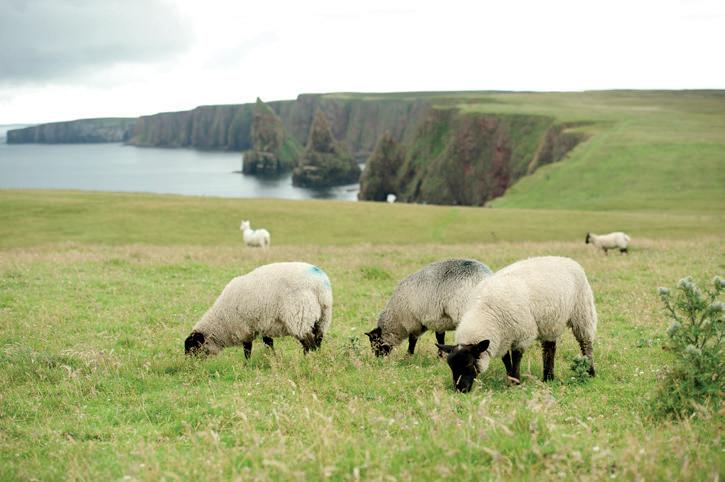

Earlier this year Farmstrong Scotland launched a new podcast series called ‘Blether Together’. It aims to bring real life stories and experiences from people within Scotland’s agricultural community to your mobile device or laptop. Each episode is essentially a chat, or as the title suggests more of a relaxed ‘blether’, between an individual with connections to the Scottish agricultural sector and the series’ presenter Sarah Stephen.
No topic is off limit but in each blether, Sarah is able to candidly discuss some of the challenges that daily life has thrown at the interviewees and identify how they’ve dealt or identified coping mechanisms to ensure they positively manage their wellbeing. The 30 mins (approx.) podcasts make compelling listening and importantly shine a light on the importance of wellbeing within society and particularly Scotland’s rural sector.
Podcasting continues to skyrocket in popularity, with people liking the flexibility of listening to the recordings at a time


that suits them rather than being tied to catching a live radio broadcast. This inaugural series of ‘Blether Together’ has been backed by the NFU Mutual Charitable Trust, along with support from Farmstrong Scotland’s founding funders Movember and the Royal Highland Agricultural Society of Scotland. NFU Scotland are media partners.


Most people know Sarah Stephen from her work as a television presenter.
Apart from the odd insight while working on the BBC’s rural affairs programme Landward, not everyone will however be aware that Sarah - who many still refer to by her maiden name Sarah Mack - is married to a farmer.
Although she thankfully ended up with a very happy childhood, Glasgow-born Sarah didn’t know her father, William Watson, who was killed by the IRA while serving with the Argyll & Sutherland Highlanders in Northern Ireland in the 1970s. He died in the November and Sarah was born in the December. She didn’t learn until later in life that her father’s father, who she never knew, had a farm between Perth and Dundee, coincidentally only a few miles from where she has ended up making her life.
It was while working at Grampian TV - on a night out with colleagues in Aberdeen - that Sarah met her husband David Stephen, who farms at Barra Castle
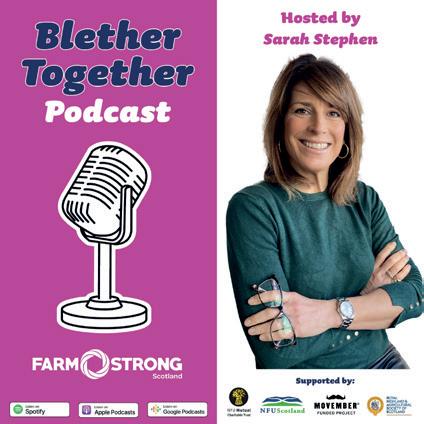

near Oldmeldrum. The pair married with a year-and-a-half of meeting and have four sons. The cattle and sheep farm also grows berries, Barra Berries, which inspired a farm shop and café. Sarah has been very involved in further farm diversifications, including a wedding venue and holiday homes.
Ahead of the ‘Blether Together’ launch, Sarah said “As a little girl growing up in Glasgow I never thought I would end up married to a farmer. I have found the farming and crofting communities to be very welcoming and I’m so very proud to be able to support them through this Farmstrong Scotland podcast. I hope people will enjoy listening to it as much as I am recording it.”
Don’t worry if you aren’t familiar with podcasts. Some readers may be avid listeners, have their favourite regular podcast(s) they listen to frequently. Others may have heard people talk about ‘podcasts’ but never explored, downloaded or listened to one. Some readers may not want to try. Others may want to but feel it’s almost too late in the day to try and perhaps even a bit embarrassed to ask how to find them. It really doesn’t matter what camp you fall into but let me share my relationship with podcasts.
“Podcasts – I will never find the time to tune in. There’s nothing I want to listen to that I can’t get via radio, tv or the internet.” I had thought. I can’t recall when I stepped into the podcast world
exactly, but I’ve not looked back. I would probably describe myself as an ad-hoc podcast listener but I have some favourites and dip in and out of others. The total beauty of this information platform is that you are completely in control of what you elect to listen to, when you do it, where you do it, and for how long you listen. Often, I tune in when making the tea in the kitchen, driving or occasionally when walking the dog. Even if I don’t have long, I can start and stop it when it suits and return to it later. I would really recommend giving podcasts a go and would try ‘Blether together’ as a starter.
You can find and download the Farmstrong Scotland’s ‘Blether Together’ podcasts in the Wellbeing Hub of www.farmstrongscotland.org.uk . Each episode lasts approximately 30 minutes. Alternatively, you can find the podcasts along with a range of others on Spotify, Amazon Music, Apple podcasts or Google podcasts. (You may have to download the related App first before you can progress.) Once in the App you can ‘search’ for the title (if you know it) e.g. ‘Blether Together’ or on subject/ topic. I’d recommend you downloading what you want to listen to when you are on Wifi or connected to your home network. That way you can listen to your podcast when you are on the move without eating into your data allowance or being reliant on a mobile signal. Good luck and have fun.
Sarah Stephen, recently took time out to talk to Scottish Farming Leader about her involvement in the ‘Blether Together’ podcast series. Here is what we discussed.
Sarah we’re nearly three quarters of the way into the first series of ‘Blether Together’, listening stats are showing that you’ve now have a following of over 1000 which is great – congratulations. What impact has recording the series had on you?
“Coming from a television background into podcasting I’ve learned a lot doing this series.” said Sarah. “It’s a different skillset that’s required and I’ve really enjoyed the challenge of finding my feet with it all. It’s been quite intense. You only have a very short period of time with the interviewee and during that time you have to make them feel comfortable and willing enough to share some deeply personal experiences. I really admire and appreciate all those who I’ve interviewed to date. They’ve all been great, and I am amazed at how willing they have been to share with me (and in turn the listeners) their own story. Many would struggle to talk to their best friends or someone that they’ve known for years so openly.
“I’ve been struck in each podcast how easy it has been to empathise with each interviewee. We can all related to having good days and bad days. We’re all different but it’s easy to relate to this. The power of sharing can’t be underestimated.
“So far, I’ve spoken with John Scott, Rory Christie, Michael Blanche, Isla Mackenzie and Stafford McDowall. They all have come from different backgrounds, all have faced various challenges and all have had good days and bad. Their openness to share is so inspirational. Hearing how they’ve each dealt with various challenges in their own way is something we can all reflect on and learn from. I certainly have.”
Have there been many common themes/ triggers that you have found the topics covered in the series so far?
“Every story is unique and that’s special. The breadth of life experience between the interviewees so far has been quite varied. It’s been super to listen to and discuss with each. You have some who have younger minds and perspectives on life and who share incredible drive and determination to overcome the ‘bad days’ or barriers. On the other hand you have some with more life experience who perhaps view their approach to dealing with challenging situations in slightly different ways. There’s no right or wrong way and I think that’s what’s so impactful and thought provoking. I hope the energy and positivity comes across in each podcast.
“I think it’s also important for listeners to understand that you never know what’s going on in someone’s mind. It’s only through communication and sharing that you can gain the best understanding of what an individual is thinking or going through.
“Many people aren’t comfortable sharing or opening up about emotive subjects but perhaps listening to the podcast series will enable them to also relate to much of what is being shared. It may help them address some of their own challenges.”
Have you taken any of what you’ve learned home?
“Yes. It’s important to realise that every day is different and not everything will go right all of the time. You need to be prepared for that and recognise that sometimes that is just a reality of life. Sometimes things won’t go your way. If you accept that – you can approach the next move or day with positivity. It may not be easy but you’ll find how to read the signs and develop coping mechanisms that work for you.”


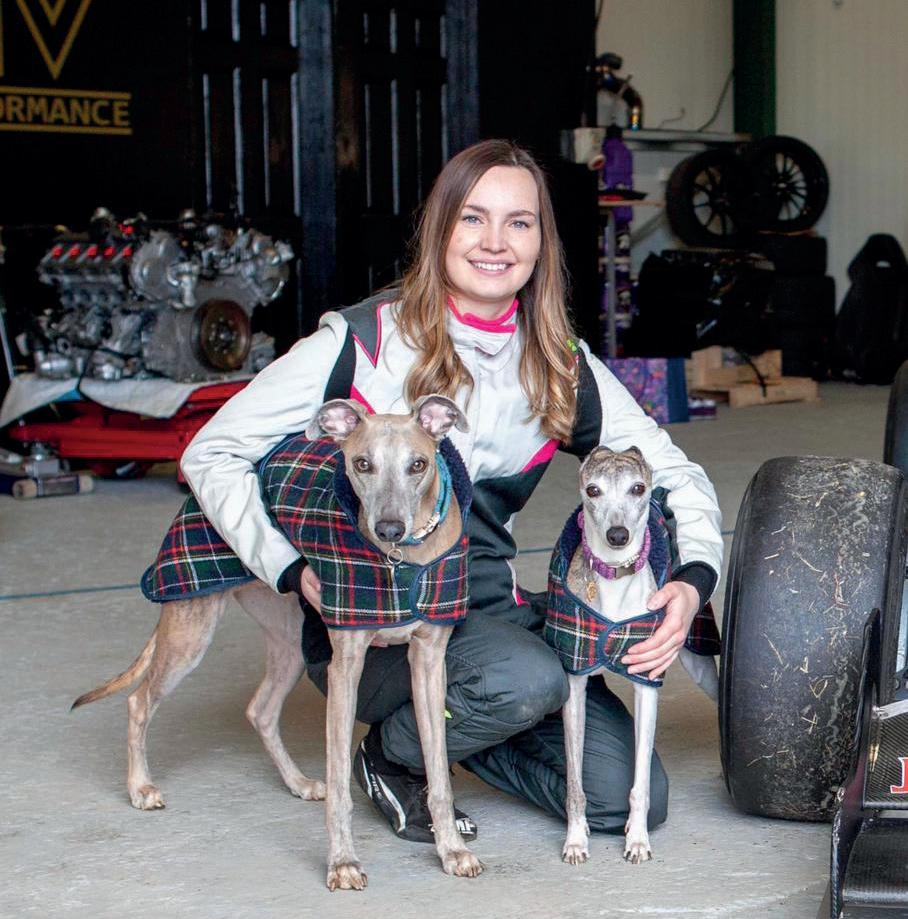
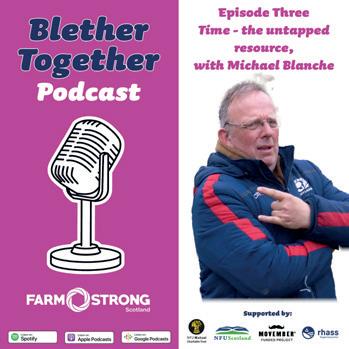
How have you managed to fit presenting ‘Blether Together’ with all you other work and family commitments?
“It’s been an absolute privilege to be involved with the podcast series. It’s provided me an excellent opportunity to meet some extraordinary people and hear about their life stories. They have really inspired me. I’ve also benefited from my time off-farm when recording each episode. It’s given me time to reflect as well as recharge.”
Do you listen to podcasts yourself?
“Yes – I consume podcasts. I tend to listen to them in the car or on long dog walks. I particularly ones which are people sharing inspiring stories or having business conversations. I learn from these and also get a lot of motivation to help develop our own business or have the confidence to try new things.
“Importantly I make sure I’m avoiding listening to negative material.”
It’s a competitive podcast market, for anyone reading this what you say to convince them ‘Blether Together’ is for them?
“The people featured in the series all have connections to Scottish agriculture. I think it’s nice to listen to someone from your country as it instantly brings everything closer to home and, in turn, makes it naturally easier to connect and understand the environment they are coming from. There’s something powerful about that. It’s people from your ‘home turf’, a familiar voice and good banter. You may not get that from other podcasts.
“The other attraction without doubt it that these are ‘real’ stories and truly inspiring yet ‘normal’ people that understand our communities.”
Wellbeing is at the heart of Farmstrong’s existence. What do you do to ensure you are looking after your own wellbeing?
“Exercise is massively important. I need movement in my life. Nothing beats an invigorating dog walk along the beach near our farm. I love the sea. Exercise like walking on the beach really rejuvenates me.
“I read a lot and listen to a lot of selfhelp podcasts. They help me focus and feel I am not alone. I strive to be the best I can be. I also need to laugh. Laughter is so good for you. It’s important not to take everything too seriously and be able to laugh when you can. It’s a great trait.
“I also like to be social and find it’s so good to be surrounded by people you love and who love you back.”











0%APR, THAT IS 50% DEPOSIT | 50% DUE IN 1 YEAR^ * THE ISUZU D-MAX
All fuel consumption and emission values are based on the new WLTP (Worldwide Harmonised Light Vehicle Test Procedure) test cycle which uses real-world driving data. Official fuel economy for the standard Isuzu D-Max range in MPG (l/100km): Low 25.1 – 27.6 (10.2 – 11.2). Mid 31.4 –
Extra-High 29.0 – 30.8 (9.2 – 9.7). Combined 30.7 – 33.6 (8.4 – 9.2). CO2 emissions 215 – 241g/km. Visit isuzu.co.uk for more information.
^Terms of Offer: 50% deposit followed by the remaining 50% paid in one payment after 12 months. Credit available subject to status to UK residents aged 18 and over. This credit offer is only available through Isuzu Finance provided by International Motors Finance Limited, St. William House, Tresillian Terrace, Cardiff CF10 5BH. We typically receive commission or other benefits for introducing you to International Motors Finance Ltd. This may be a flat fee or percentage of the amount you borrow. Vehicle shown is an Isuzu D-Max V-Cross, OTR price of £43,716. Model shown features optional special paint finish at £720. OTR price includes VAT, delivery, number plates, 12 months road fund licence and first registration fee. Prices correct at time of going to print. Offer available on the DL40, V-Cross and V-Cross Steel Special Edition only registered between 01.10.2024 - 31.12.2024. Stock subject to availability. Isuzu reserves the right to amend or withdraw offers at any time without prior notice. Retail customers only, not available in conjunction with any other offers. Excludes Personal Contract Hire and Business Contract Hire. Offers may be varied or withdrawn at any time.
VISIT ISUZU.CO.UK TO FIND OUT MORE Isuzu (UK) Ltd is a subsidiary of International Motors Limited.
AYRSHIRE




REGIONAL MANAGER Mhairi Dawson
07718 425 053
mhairi.dawson @nfus.org.uk




REGIONAL MANAGER Sheena Foster
07789 796 582 sheena.foster @nfus.org.uk
FU Scotland members were invited to the recent Sheep Special meeting held at the South Ayrshire QMS Monitor farm. Hosts Francis and Marion McMillan discussed the sheep system managed on behalf of the Dalrymple-Hamilton family.
The sheep enterprise runs across three units extending to 2200 acres (890ha)
• Lowground Unit - Shallochpark600 texel cross ewes.
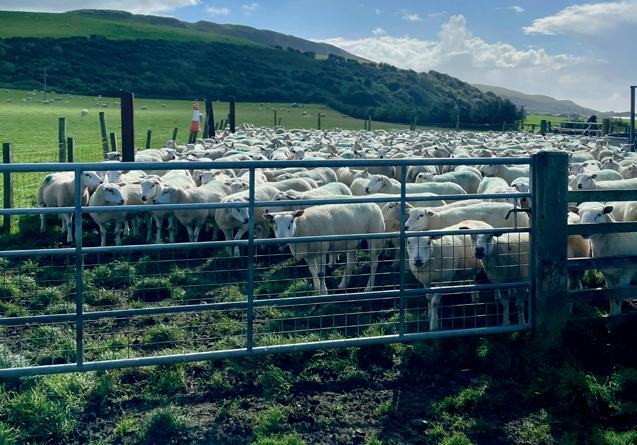
Marion is a vet with SAC Advisory service and talked through sheep disease risk to be aware of and how to carry out tup MOT’s.
• Mixed unit of low ground and hillHoudston - 700 Lleyn ewes.
• Hill unit - Delamford - 700 Cheviots.
Monitor farmers, John and David Andrew summarised their sheep system and the attendees at the meeting then worked in groups to make suggestions that could be implemented for the fl ocks at Rowanston and The Blair. The afternoon was rounded off with a good chat over big plates of mince and tatties!
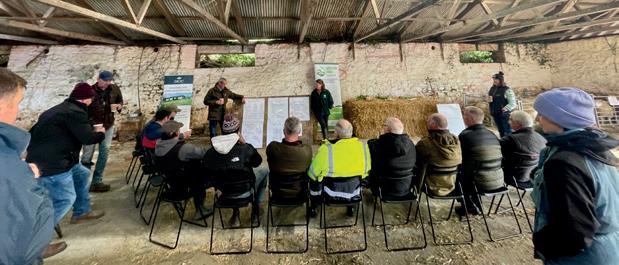
NatureScot launched their Information Hub last month which includes an updated map with areas of both South and East Ayrshire included within the boundary. We encourage all members to visit https:// newnationalparkgalloway.commonplace.is/ for the latest map and information. The public consultation phase will run from November 2024 to January 2025. We continue to engage with NatureScot on a regular basis.
SAVE THE DATES
25 November
President Martin Kennedy and Director of Policy
Jonnie Hall will be in Ayrshire to talk to members about future support. The event will take place at The Mercure Hotel, Ayr, starting at 7.30pm. We hope to see lots of members join us for the discussions.
As policy managers we are hearing about members access issues more and more often. We’re arranging an MSP round table discussion on this and invite members to send us any information about their experiences (good or bad) with access related issues.
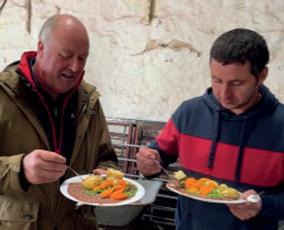

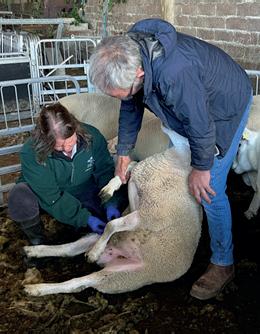
27 November
NFU Scotland, The Galloway & Southern Ayrshire Biosphere and Propagate are hosting a second future farming conference, this time in the Dumfries Arms, Cumnock. Come along to hear from ex Union President Andrew McCornick, Senior Policy Manager Sarah Cowie, Ayrshire members and other farmers on their stories of farming for profit and nature. Booking is essential and links have been emailed to all members already.




MREGIONAL MANAGER
Sheena Foster 07789 796 582 sheena.foster @nfus.org.uk
embers of the Clydesdale Branch recently attended a branch meeting at Damn Delicious, Thankerton, kindly hosted by owner and member Michael Shannon.
Michael and family run a farm near Biggar with an onsite Farm Butchery and Bakery producing Free Range natural, grass only, Aberdeen Angus beef and Lamb, and pride themselves on their unique and natural farming methods used to ensure they produce the fi nest quality and delicious tasting meat.
The members were led on a farm tour by Michael followed by a butchery demonstration and steak pie sampling back at the Farm shop.
Rhianna Montgomery, Rural Business Policy Manager also joined the visit and gave the members an update on the Land Reform Bill.

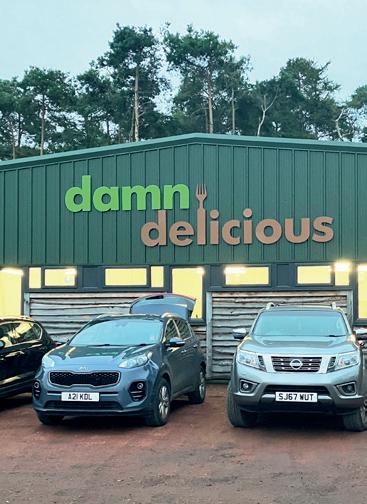
A huge well done to the Regional Chair, Mark Donald who took gold once again at the RSBAI Great Glen Challenge, taking top spot and winning the quickest time in the Kayaking section for the second year in a row.

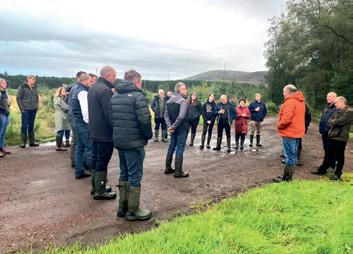

Local Branch AGM invites will soon the making their way to you so please make sure to mark in your diary and come along. It’s an opportunity for a social get together and an update on the latest actions of NFU Scotland and to plan what activity your branch will schedule for 2025.
Also please note that the Regional AGM and Hustings will take place on Tuesday 14 January 2025.
As always anything that you think NFU Scotland can be of assistance to you please get in touch.




REGIONAL POLICY ADVISOR
John Laughton
01856 872 048
john_laughton
@nfus.org.uk
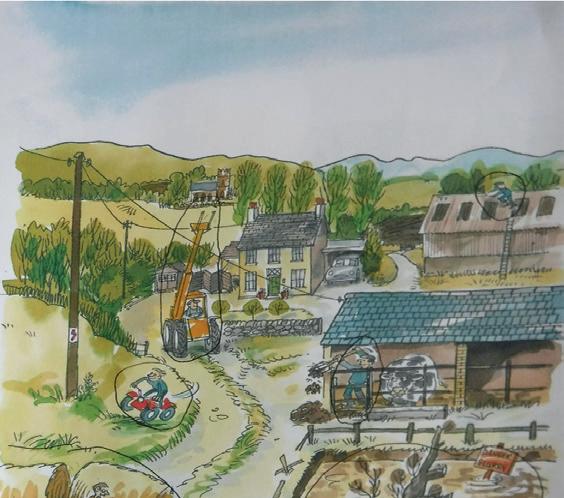
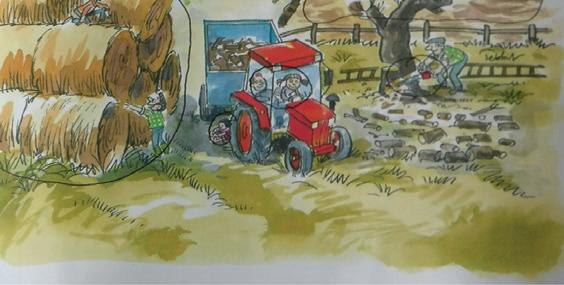







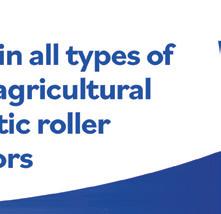

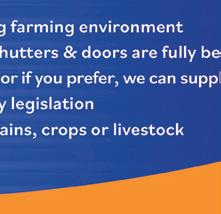
At the end of September, we participated in the annual Safe Islander event held at Kirkwall Grammar School. This was attended by all 240 second year pupils in Orkney including the island junior secondary school pupils who make the trip into Kirkwall for the day. The aim of the event is to make the pupils aware of the risks and dangers that exist with a number of activities and industries in Orkney. As well as NFU Scotland, RNLI, Police Scotland, Scottish Fire and Rescue Service, Orkney Alcohol and Drug Partnership, SSE, SEPA and Casey Construction, all hosted workshops for the 24 groups (yes, 24 groups!).
At our workshop each group of 10 pupils were split into two groups of fi ve. Each group were given a cartoon poster of a farm scene depicting typical everyday farming activities. They were asked to identify all the risks and hazards on the poster. We then discussed each potentially dangerous situation, why it was a hazard, what could be done diff erently/better etc. It was also emphasised that farms






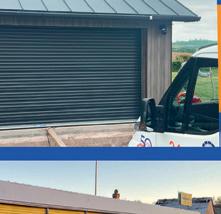

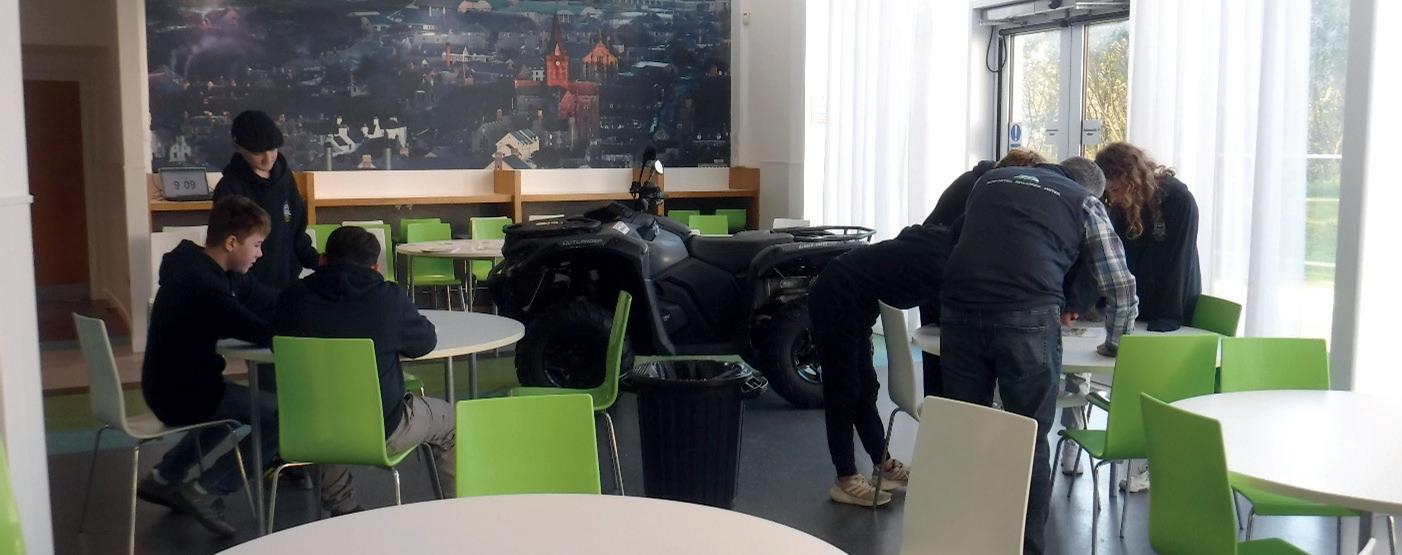
are particularly dangerous places for children as they are homes as well as a workplaces.
A quad bike on loan from Robertsons Orkney was also brought into school to discuss the regulations and hazards associated with ATVs.
The pupils’ knowledge and appreciation that farming is a dangerous industry was very impressive and the majority of pupils were acutely aware of the hazards and risks associated with farming which is very encouraging as we continue to tackle the industry’s poor health and safety track record.












REGIONAL MANAGER
Ian Wilson
07775 915 988
ian.wilson
@nfus.org.uk
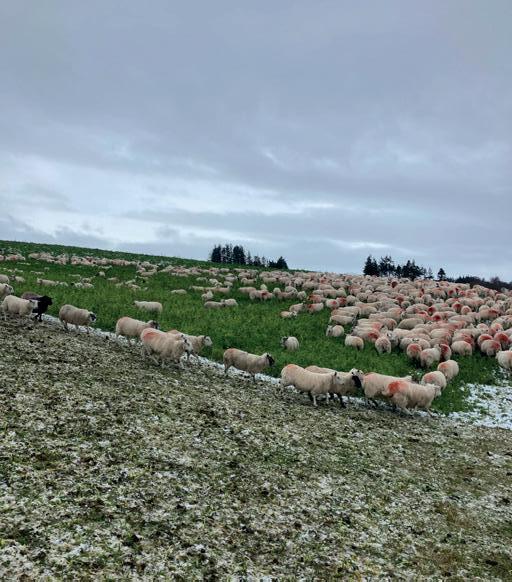
Group Secretary and Senior Agent from Thurso and Dingwall NFU Mutual office, Graham Laing, retired at the end of October. I am sure all wish to thank Graham for his service and efforts over the last 10 or so years. With this change there’s always opportunity, so we’re on the hunt for suitable candidates to fill Graham’s role as a self-employed agent. We also have a vacancy for an Agent/Group Secretary for the Thurso office. Both positions provide a great opportunity for anyone to go on and run a business with good financial rewards and terrific existing staff. Established Agent, Jonathan Hogg, remains in place to keep the ship sailing while we recruit. Please point and potential candidates to us at NFU Scotland or NFU Mutual.
As always anything that you think NFU Scotland can be of assistance to you please get in touch.
For many farmers this time of year firmly represents the start of the winter routine which seems to have come about very quickly this year particularly for the mixed livestock farmers with the harvest being about a month later than usual. With shorter days upon us, there’s often comfort with the onset of the winter routine. There are more opportunities to spend time off farm investing in yourself and your wellbeing whether it be on an educational or social event - or both! An away day at a show or an evening meeting in November can be rewarding on so many levels. Watch out for opportunities from NFUS and other organisations.

As we enter November our Western Isles and Skye branches will have held their branch AGMs and had Crofting policy and future payment updates form Vice-President Alasdair Macnab. Alasdair, along with agents Jakes Sayles and Dougie Macleod, will have put in the hard miles and ferry trips to make this happen, good turnouts and conversations will have made the time spent worthwhile.
When our other branch AGMs come along, please attend and get involved. It helps ensure we shape how your Union lobbies on your behalf both locally and nationally.
LOTHIAN AND BORDERS




BREGIONAL MANAGER
Lindsay Brown 07780 441 750
lindsay.brown@nfus.org.uk
algone Estate is just a stone’s throw from North Berwick in East Lothian. The Grant Suttie family farm 1000 acres of arable land mainly growing wheat, barley and oilseed rape. They run a herd of Angus cattle which graze the uncroppable fi elds which have a rocky ridge running through them. They have long had a strong focus
on environmental and sustainable production wherever possible. Throughout the farm there are many areas which have been given over to wildlife. A lake in a wood has been transformed into a popular walk when an all-weather track was laid taking advantage of AECS funding in 2018.
The Balgone ‘pick your own’ (PYO) Pumpkin Patch was created 2020 by son David and friend who came up with the idea in the boredom of lockdown. They planted a fi eld of pumpkins and then took on the challenge of growing a successful crop and getting people to come along to pick them. Five years on, the pumpkin fi eld is now 10 acres with 60,000 pumpkins of all shapes and



sizes. They’ve built up a loyal customer base and added a haunted walkway around the lake to enhance visitor experience.
On the back of their pumpkin success the next project was to create a PYO




Lee Smith
07554 741 030 lee.smith@nfus.org.uk
hetland local marts is in its busiest period of the year providing a vital service and hub for crofters and farmers to sell their livestock. The importance of locals supporting their local marts is an economic advantage to the local community and a vital player in supporting local crofters and farmers.
Shetland Livestock Marketing Group (SLMG) is a co-operative benefi ting the agricultural community of Shetland. Established in 1995 to bring together various agricultural groups under one umbrella company, SLMG supports a variety of sales including, lamb sales, fl ock book, Rams, Shetland Pony, Machinery sales, Open days and shows. With 500 members and a number of full and part-time employees, SLMG supports the local economy, agriculture and employment.
Lamb sales season started in Shetland on Friday 30 August. Since the fi rst sale there has been a large number of lambs going through the sales ring. Cecil Eunson SLMG Chair said, “This year’s sales have been exceptionally busy so far. Last year we had around 76,000 lambs going


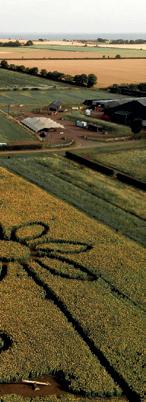
Sunfl ower Patch for the summer visitors. A trail was cut through the fi eld and there are many photo opportunities to make memories in the stunning location with sunfl owers and North Berwick Law as a backdrop.
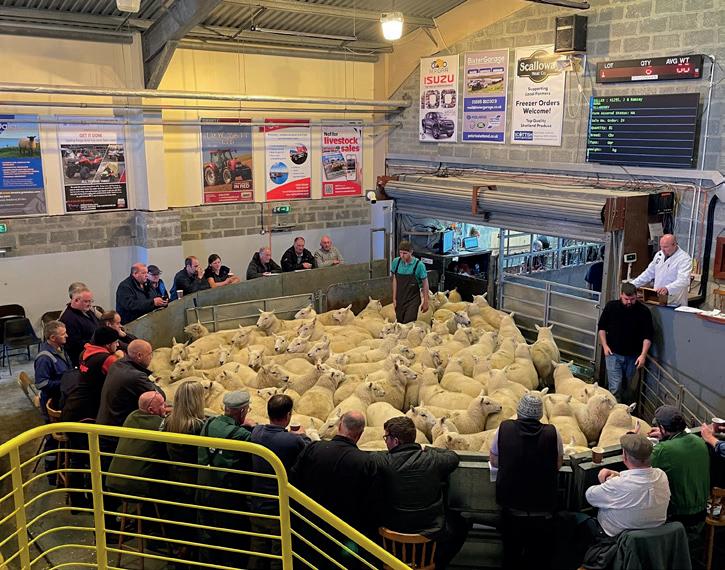
through our sales ring, this year booked numbers of lambs look well on their way to exceeding that number. The local marts run and work exceedingly well, a big plus has been the ability for buyers to sign in online and buy stock via our bidding system. On occasion over half the lambs sold have been purchased via online bidders.”
With auctioneer Ellis Mutch travelling to Shetland to take up residency for the duration of sales season, the local mart works in partnership with Aberdeen and Northern Marts to ensure crofters and
With all these visitors enjoying the farm their latest addition is setting up the Herd café to provide high quality refreshment. The intention is to celebrate local produce with a farmto-table menu which will be developed in the coming months. The café will be open all year round at weekends to start with, this will extend if demand grows.
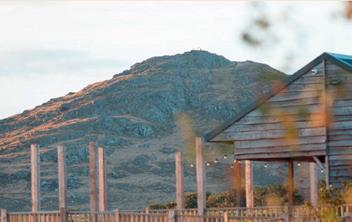

farmers are well supported to sell their livestock.
SLMG also house the local abattoir. Formed in 2011 it provides a butchery service for Shetland crofters and farmers.
Working alongside NFU Scotland, local Agricultural consultants, Shetland Vets, Livestock groups, Shetland Island Council and Northlink Ferries, SLMG assist in bringing a co-ordinated approach to Shetland Agriculture and are an integral part of agriculture in Shetland…..a service we cannot loose.



James said, “I think with the uncertainty and volatility of farming it makes a lot of sense to diversify where possible, the boys have the skills and ambition to add value in keeping with present farming practice. Hopefully they can secure the fi nancial stability of the business for the future.”




REGIONAL MANAGER Lorna Paterson
07786 860 453
lorna.paterson @nfus.org.uk
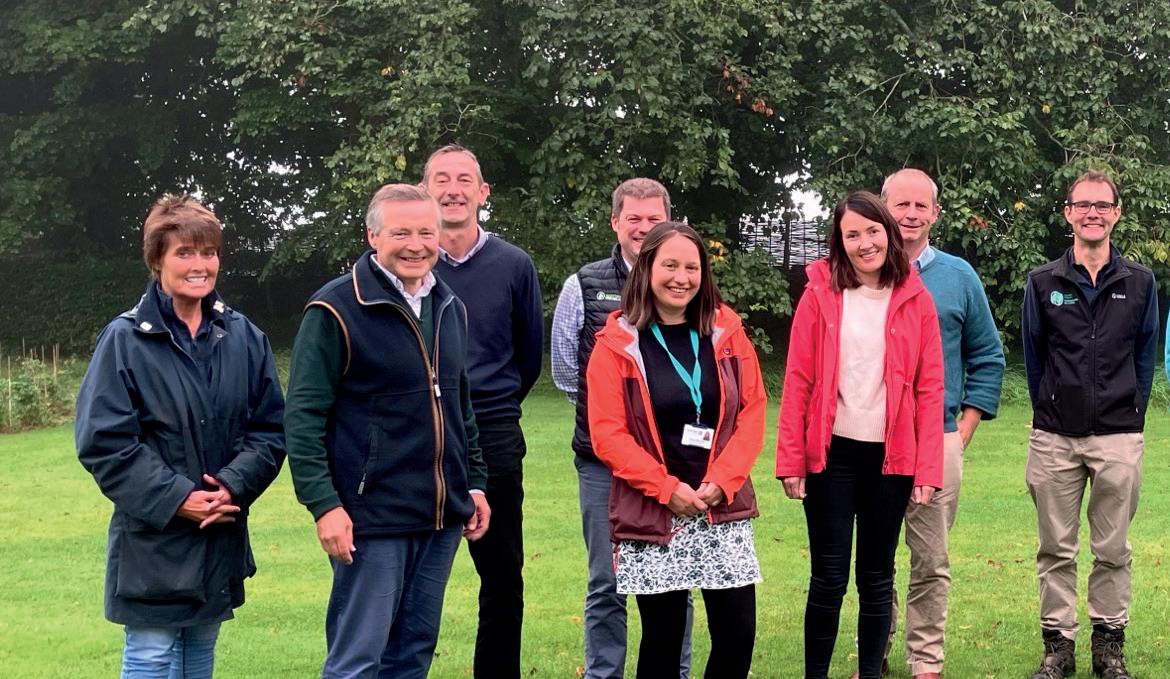
Richard, Rosslyn, Jennifer, Pauline and Sandra from the Keith Office all participated in Scottish Action for Mental Health (SAMH) training on National Suicide Day. Trainer, Tracy Sellar, was fabulous and is highly recommended. We hope to do more suicide awareness training with SAMH in Laurencekirk soon.
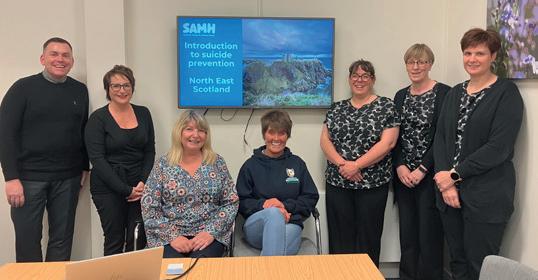
I had the enormous privilege of being invited to present to the congregation of St Rufus’ Church, Keith at their Harvest Thanksgiving at end of September. The theme was the joyfulness and challenges associated with farming. The congregation were so welcoming and supportive of
our farmers. It made me refl ect on the appreciation some folk genuinely have for farmers and I do wonder how we could better support these local communities, who are interested in our industry. Thank you to Charlie Cameron, Session Clerk for being the “Minister” in Wiekus’ absence.
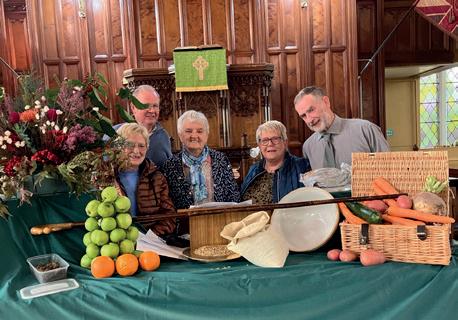
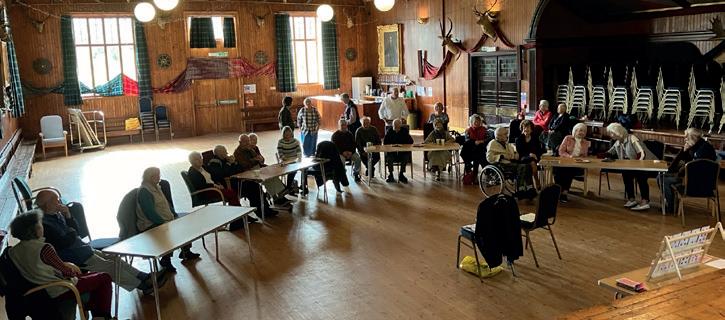
Charlie Adam and myself were invited to meet the Donside Silver Circle Club to help highlight the challenges and positives within our farming industry. There was a real mix of farming and non-farming guests and the discussions covered many subjects
including red tape, assurance schemes, food labelling and species management. Charlie’s knowledge and highly articulated presentation skills were well received, and we have been invited back to carry on the conversation next year.
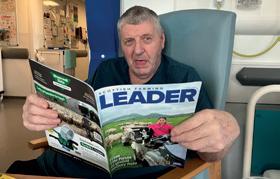
A final note on behalf of local member, Alec Hay, who has been confined to Ward 216 in Aberdeen Royal Infirmary since January. He keeps up with Union news via ‘Scottish Farming Leader’ regularly and wanted to let everyone know that he is hoping to move into a Care Home soon and would welcome communication from his farming colleagues. We wish Alec well.
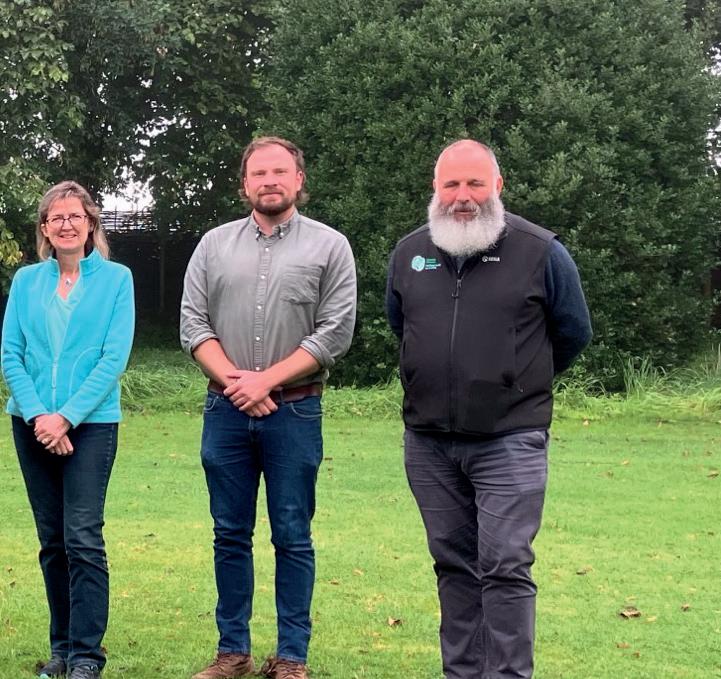


The Argyll region recently hosted a ‘Successful Succession Planning’ online event, which over 60 members booked into. Here the four invited speakers share their ‘Top Tips’
With family and advisors, ensure everyone knows “who’s who” and what is happening and when.
(Alan White, Gillespie Macandrew)
Start a conversation early before there is an issue
Do not put it off. Before a child leaves school/college and joins the business; before there is a wedding or a partner moves in; when parents inherit the farm, what is their exit strategy, how will they fund retirement.
(Heather Wildman, Saviour Associates)
Think of your vision for the future, create a broad timeframe then consider moving certain assets and responsibilities over to next generation over a period of time. (Alex Docherty, Johnston Carmichael)
Use the expertise that’s available
Speak to your accountant, your solicitor and your fi nancial advisor. Assemble your team of advisors and bring them into the conversation. (David McIntosh, NFU Mutual)
During the challenging harvest, members have also been very busy helping with lots of NFU Scotland issues and events. Sandy Manson kindly hosted a meeting with stakeholders and local Buchan farmers to discuss the “Sma’ Wids” project which is being funded from a private external source. We plan to expand this project, gain more support fi nancially, as well as encourage increased uptake by local farmers. Trees and support are provided free and this is a tremendous opportunity to gain expert knowledge and plant trees on small areas of your less productive land.
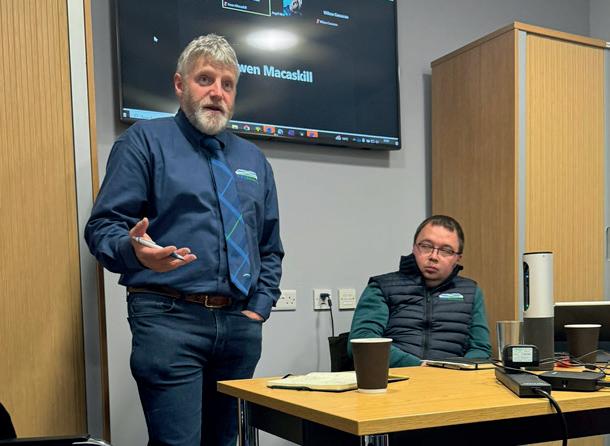
Martin Kennedy, NFU Scotland President, gave an update to members from the Lorn and Mid-Argyll branches recently. He outlined the key components of future support. Members raised concerns over the future of LFA support and highlighted how important support payments are to the area to avoid large scale loss of critical mass in the livestock sector.
I recently attended a meeting of Argyll and Bute Council’s Planning Performance Customer User Forum. The Council highlighted some of the signifi cant challenges that the planning department has been facing and they acknowledged that performance has suff ered as a result. Offi cials outlined
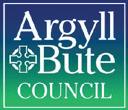
some of the measures that have been put in place to improve customer service. We have been in discussion with offi cials specifi cally on issues relating to planning applications for slurry storage. If any members have planning issues that they would like the Union to raise with the Council, please contact me.




REGIONAL MANAGER
Kate Maitland
07919 001 23 kate.maitland@nfus.org.uk
Angus Local Access Forum brings together individuals with a common interest in responsible access to urban and rural land across Angus in line with the Scottish Outdoor Access Code. The Forum is an independent body, constituted by Angus Council under the Land Reform legislation and is overseen by their Access Officer. The Forum’s primary role is to advise on access, and resolution of access issues, across Angus.
Membership of the Forum is intended
NFU Mutual Perth would like to thank everyone who took part and donated to the recent prize draw hosted at our stand during Perth Agricultural Show. The prize was a JCB Rolly Kid Pedal Tractor and £223 was raised and donated to Farmstrong Scotland. Farmstrong Scotland is an initiative to help farmers, crofters and their families to cope with the ups and downs of farming and crofting by sharing things they can do to look after themselves and the people in their business. We are very fortunate to have Alex Ritchie living in the local area and driving the initiative forward.




to reflect a broad and balanced perspective of land access, ranging from occasional recreational access takers to landowners or managers. The Forum’s working model is one of non-adversarial discussion, and any opinion or advice given is based on consensus among the Forum’s members.
Angus Local Access Forum is in need of more land manager representatives. If you are interested in joining the Forum e-mail localaccessforum@angus.gov.uk or please do not hesitate to get in touch.
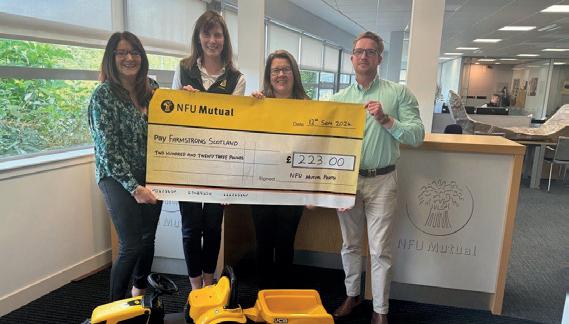
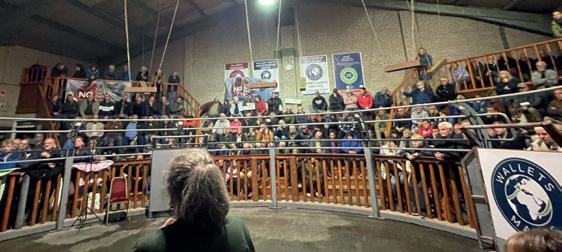
Despite the A75 being closed and reducing turnout from the west, over 330 people attended a meeting with NatureScot in Castle Douglas to discuss the proposed Galloway National Park. The audience questioned NatureScot on their neutrality as a reporter, the website functionality and contents (again for their positive bias – even the name is ‘New National Park Galloway), the timelines and what they could expect from the formal consultation period when it opens in November, possible benefi ts and much more. We will keep members up-to-date as more emerges but please visit the hub at https://newnationalparkgalloway.commonplace.is/.
If you are considering a small scale, native tree planting project on farm then please investigate this grant. Last year, farmers were one of the biggest recipients. The Grant is up to £1,000 and covers native tree purchase, protection, and a portion of fencing. There is also useful free advice on species selection and planting plan etc. available. Details and how to apply can be found at www.dgwoodlands.org.uk
I am pleased to report that after a long gap in the role, Dumfries and Galloway Council recently appointed a new Countryside Access Officer, Robbie Cowan. Members who have spoken to Robbie have been pleased with his positive, proactive response. As access issues are one of our regional priorities, please do get in touch if you have questions, comments or anything to report.
20 November
Martin Kennedy and Jonnie Hall will be at The Market Inn in Castle Douglas to talk to members about future support. We hope to see as many of you there as possible.
2 December
Wigtownshire Branch AGM at Green Valley Golf Course
4 December
Dumfries Branch AGM at the NFU Mutual Office in Dumfries.
14 January 25
Regional AGM and Husting Event with your presidential candidates for 2025
Finding the right utility deals can be overwhelming if you don’t know where to turn. At NFU Energy, we’ve built a trusted network of suppliers, working closely with them every day to secure the most competitive prices on the market Whether you’re looking to renew or start a new contract for your business, our dedicated and expanding team is here to make the process seamless and straightforward.














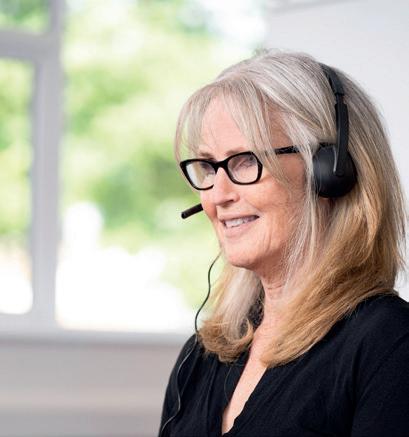



Our Farm Business Consultancy team provides a range of services including strategic farm business management, evaluation of subsidies and grant applications (IACS/SAF) and ongoing advice relating to the new subsidy regime, including carbon auditing and nutrient planning.
Galbraith has expanded its Farm Business Consultancy team to offer support for existing and new clients throughout the UK as a result of the uncertainty surrounding the future subsidy regime and fluctuating commodity prices.
• Subsidy Advice (IACS)
• Farm Carbon Audits
• Forward Budgeting & Planning

David Hurst Farm Business Consultant
Morpeth 07587 572 006

Ian Hope Sales & Rural Consultant
Perth 07968 209 543
• Natural Capital & Biodiversity Farm
• AMC Finance
• Agricultural Reports

Martin Rennie Rural Consultant
Perth 07899 923 138

Mike Halliday Farm Business Consultant
Castle Douglas 07584 173 422
• Expert Witness Advice
• Farm Reviews
• Farm Management

Calum Smith Farm Business Consultant
Ayr 07880 488 379

Jack Marshall Sales & Rural Consultant
Perth 07899 980 246


















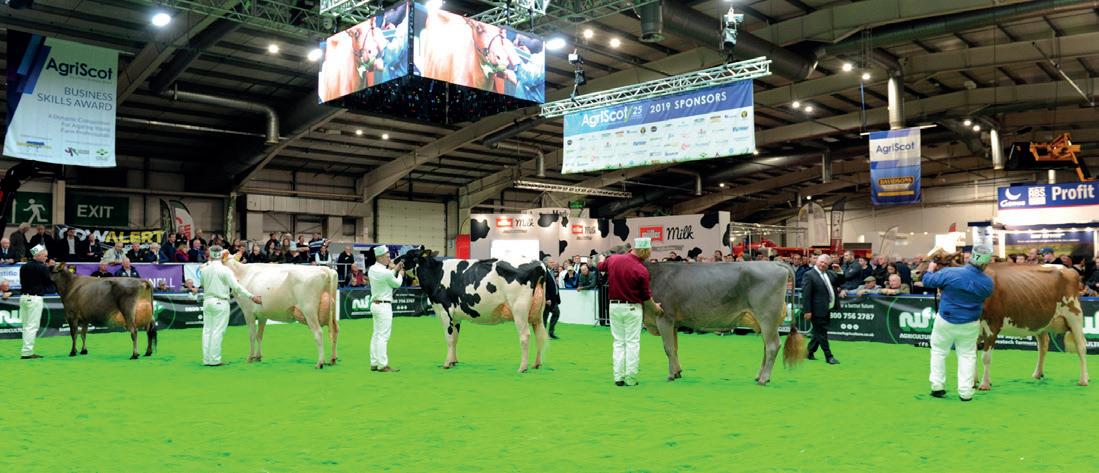
Acutting-edge livestock handling system, head-tohead debate with a Scottish Government Minister, Scottish Dairy Hub seminar and big prize competitions are among the highlights in the line-up for AgriScot 2024.
New for this year for the winter farm business event, which will be held at the Royal Highland Showground, Ingliston on 13 November, are two live demonstrations of the Te Pari sheep handling system from New Zealand with commentary from The Sheep Game’s, Cammy Wilson and Aberdeenshire farmer Nicola Wordie; seminars addressing key land and business challenges and highlighting potential new income streams; and a new ‘Mixed Farm’ category for the long-standing Farm of the Year awards.
The wellbeing initiative for farmers and crofters, Farmstrong will also be hosting a pre-event breakfast for visitors to meet up and network ahead of the doors opening at 9am, and the popular Beef Demonstration will focus this year on the pros and cons of calving at two years.
“We’re looking forward to a really good mix again this year of innovation
and practical information from our seminars, trade stands and demos, and some healthy competition in and out of the showring for all the diff erent awards,” said AgriScot Chair Robert Neill. “We are very proud that AgriScot has evolved to create a broad showcase and is now widely regarded as one of the leading farm business events across farming sectors.”
AgriScot welcomes around 10,000
We are very proud that AgriScot has evolved to create a broad showcase and is now widely regarded as one of the leading farm business events across farming sectors
farmers and agri-business professionals each year to network and see fi rsthand the latest advice, technology and practical solutions for their agricultural business.
An annual highlight is the panel debate and Q&A session with the NFU Scotland President, Martin Kennedy and a Scottish Government Minister. This year the session is at the earlier time of 10am.
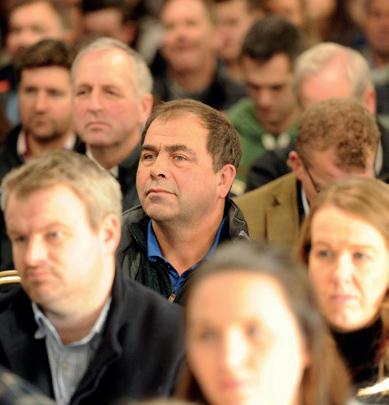
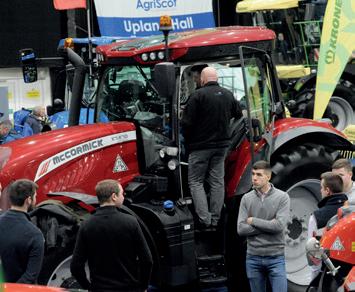
Alongside this, business seminars run throughout the day off ering important technical insights and updates for diff erent sectors, including, this year, growing maize in Scotland; livestock health, welfare and disease updates from the Moredun Research Institute; net zero baselining; addressing water scarcity; electrical infrastructure upgrades and protecting your land and business; and the active panel discussion with the Scottish Dairy Hub and Kite Consulting – this takes place at 1pm.


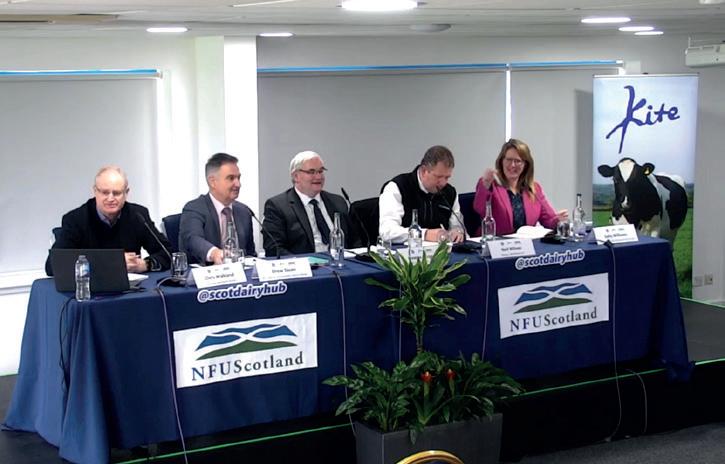
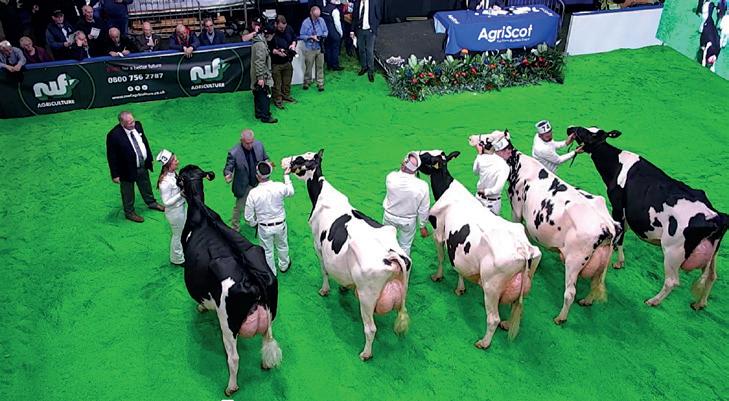
Highland Hall (Stand No 2)
Pop to Stand 2 in the Highland Hall between 9am and 5.30pm to see us for a chat and enjoy a complimentary refreshment. We’ll also have some of rewards and services partners in attendance including Radius Mobile, ATV Services and Scorpion Automotive.
All indoors, the four exhibition halls include the country’s largest winter display of machinery where visitors can see fi rst-hand a wide range of the latest hardware and technology, and a total of 240 trade stands.
The Awards are also a huge draw to AgriScot. The Dairy Classes are now open with the largest prize fund in the UK.
As well as the Farm of the Year awards, the winners of the Business Skills competition, seeking emerging young agri-business talent, the four Silage Competition categories, and of the best new product innovation will all be celebrated at the event.
Admission and on-site parking are free for AgriScot. You are asked by the organising team to register in advance so that you can save time on arrival and when gaining entrance to the event.
Visit www.agriscot.co.uk/registration
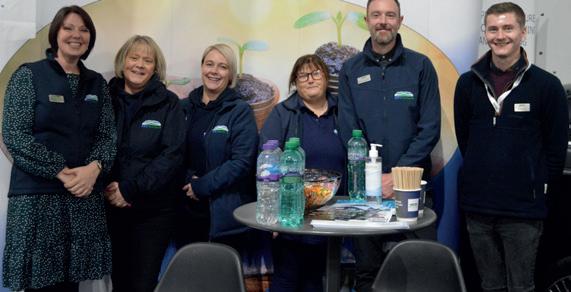


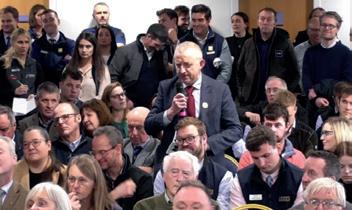



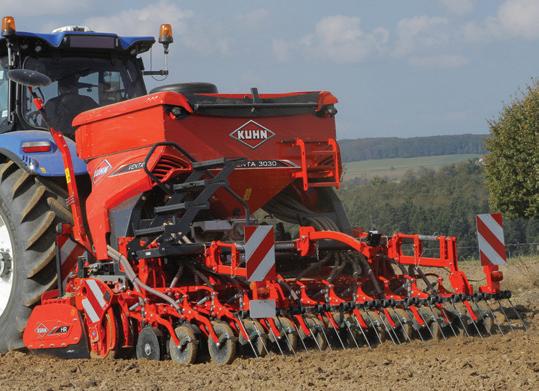

VENTA 1000 series integrated pneumatic seed drills
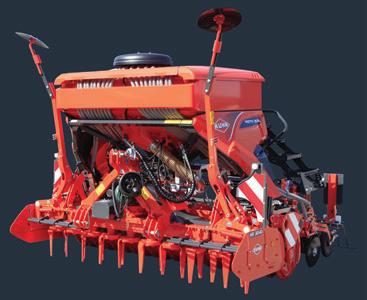
• 1,500 to 1,800L capacity
• Suffolk coulter, single disc or double disc seeding element options
• High precision application rates from 1.5 to 430kg/ha
• Tramlining 2x2 valves as standard, half width shut off or full VISTAFLOW valve head as an option
• Seeding management via Quantron S2 control box or ISOBUS
• Compatible with HR1020,1030 and 1040 series power harrows






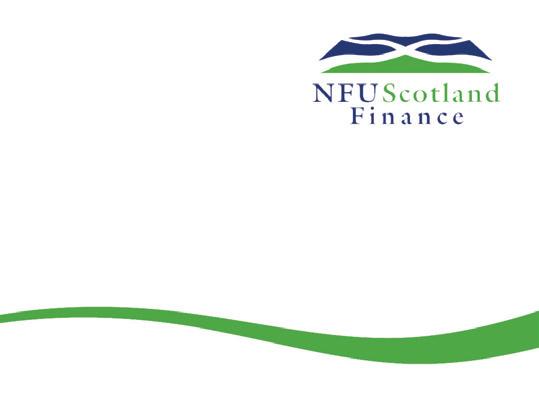
Livestock Finance, Machinery Finance, Commercial Mortgages, Business credit cards, and more...
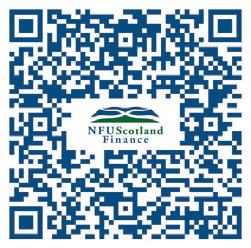











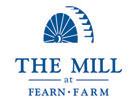









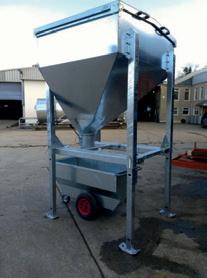





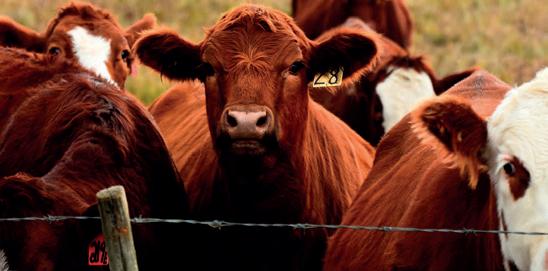

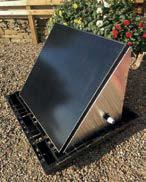
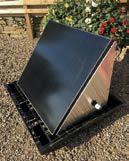


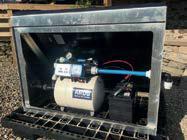
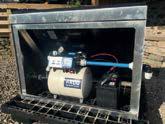


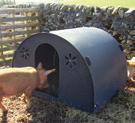
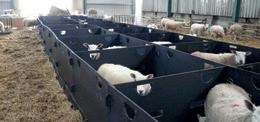











































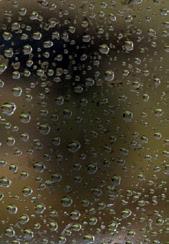


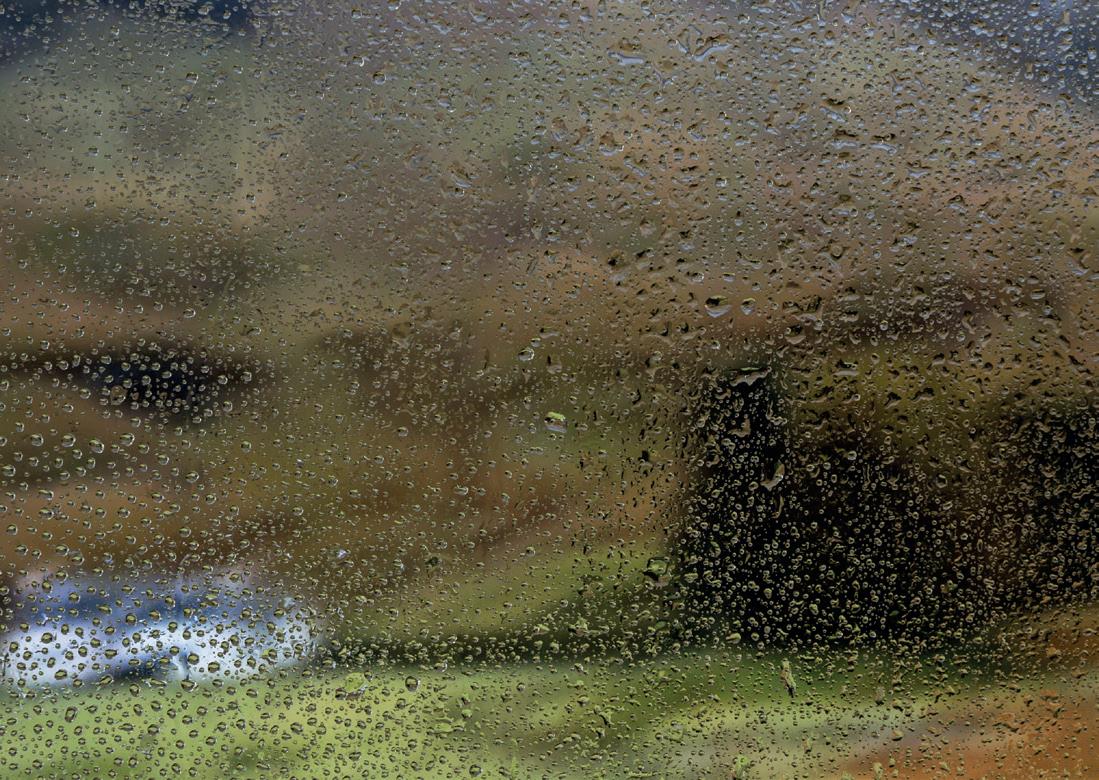




















































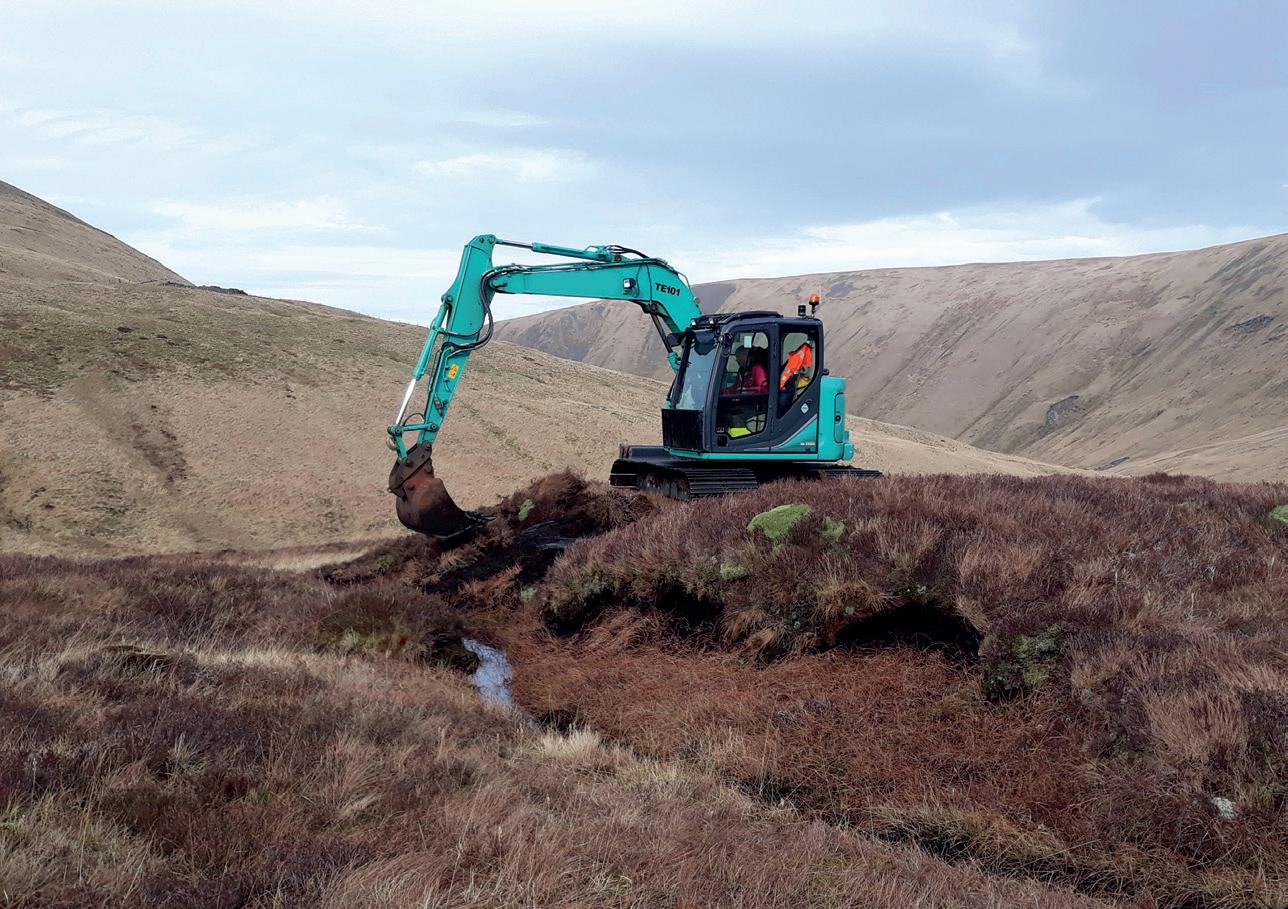
Climate change is the most serious threat to Scotland’s environment. Early action is central to overcoming these impacts.
Peatland restoration offers a solution.
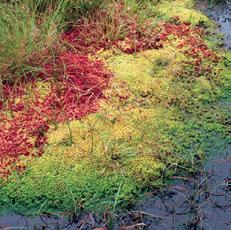


Helping us to reduce the effects of climate change by storing carbon.
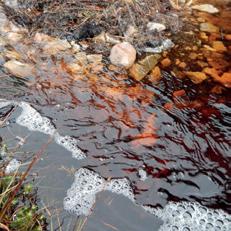
Benefiting farming through mutally beneficial grazing, and improving access for both stock and people.
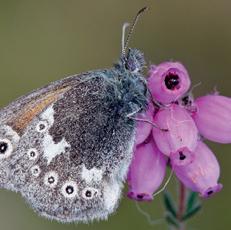
Regulating water flow and quality, improving flood management, fisheries and source water supplies.
Internationally important habitats, home to rare and often unique plants, invertebrates and birds.
We provide bespoke advice on restoration management and funding.
Contact us: peatlandaction@nature.scot Follow us: @PeatlandACTION